About the project
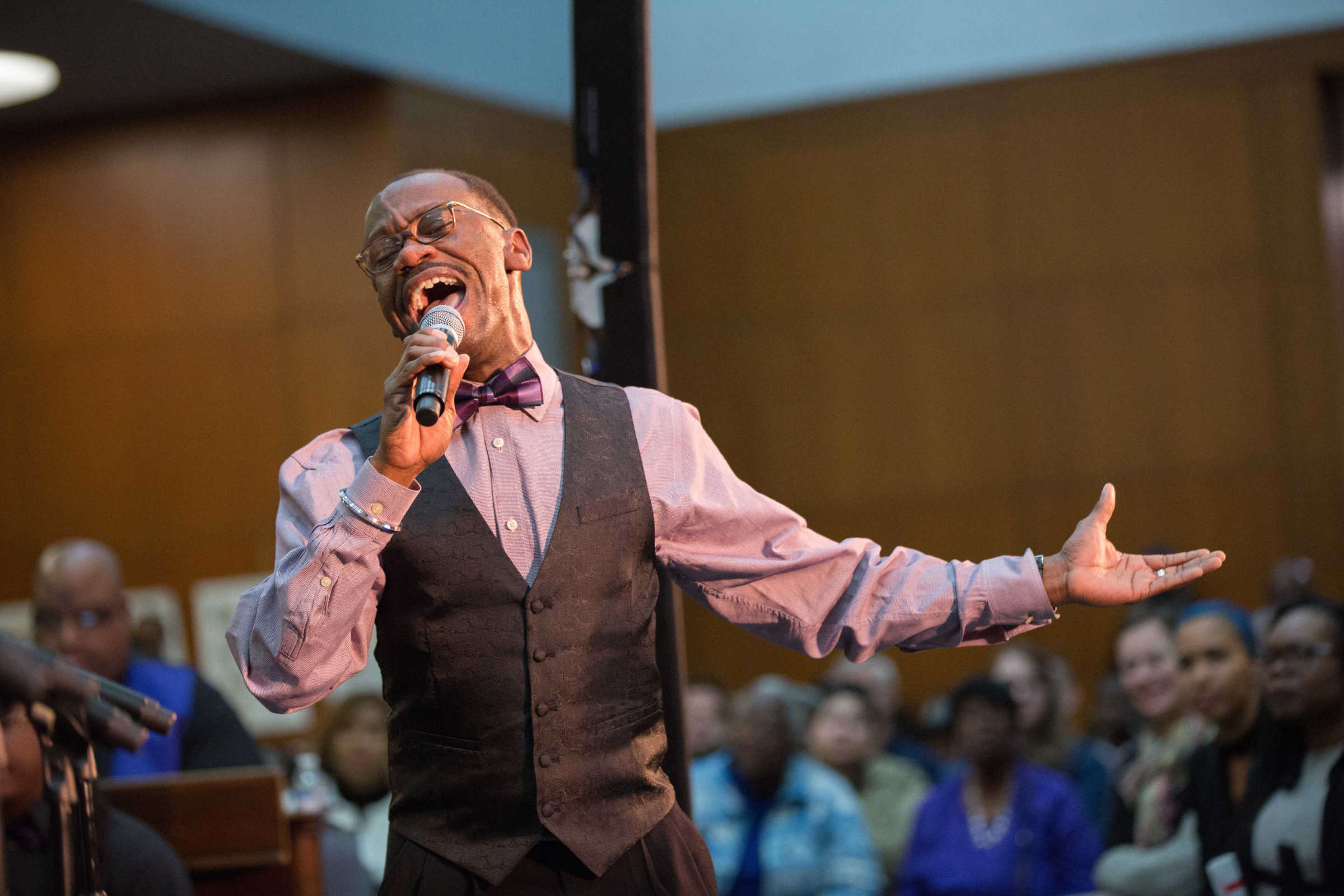
The Drum Major Instinct
Dramatic Reading of The Drum Major Instinct, by Dr. Martin Luther King Jr.
Directed by Bryan Doerries
Composed and Arranged by Phil Woodmore
Dr. Martin Luther King Jr. delivered his sermon, “The Drum Major Instinct,” on Sunday, February 4, 1968 at Ebenezer Baptist Church in Atlanta, Georgia, exactly two months before his assassination in Memphis, Tennessee. In it, he prophetically spoke of his own imminent death and laid out a challenge to his congregation, and also the world, to harness an inborn human drive—“the desire to be out front, a desire to lead the parade, a desire to be first”— and use it to promote justice, righteousness, and peace by channeling it into acts of service and love. More than fifty years after King’s death, his words resonate with new depth and meaning. It is in the spirit of promoting open, candid, constructive dialogue between diverse audiences that we perform “The Drum Major Instinct,” with the hope that it will lead to compassion, connection, and positive action.
Be uncomfortable. It's all right to be uncomfortable, but if we're on this planet, and if we don't open the conversation, we will perish on this planet.
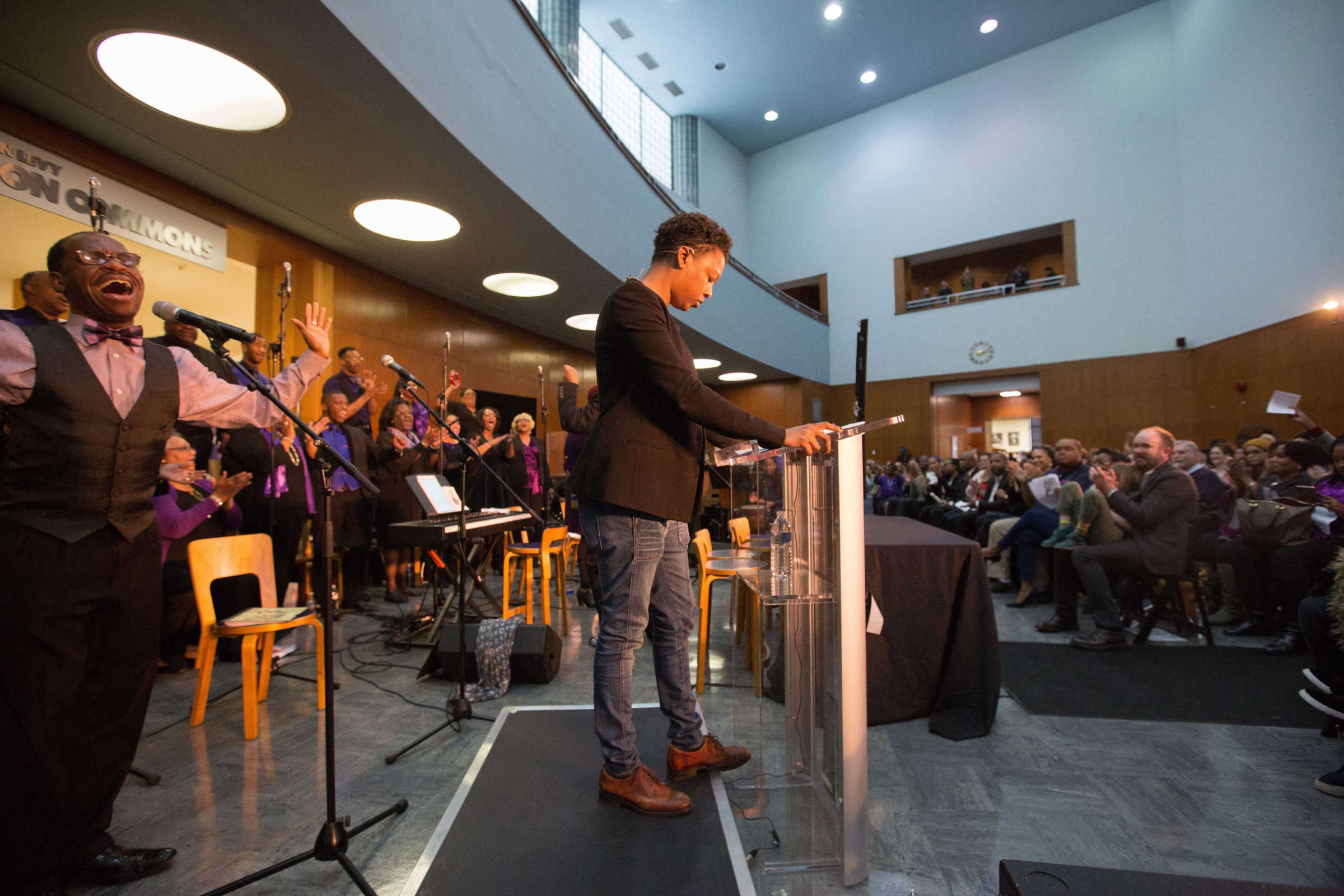
About the play
-
The Drum Major Instinct by Dr. Martin Luther King Jr.
On February 4, 1968, Martin Luther King, Jr. delivered this sermon at the Ebenezer Baptist Church in Atlanta, GA. In it, King speaks to his congregation about the destructive forces of “the drum major instinct,” defined as the desire to be first, to be recognized, and to receive distinction. This instinct, according to King, leads to “the most tragic expressions of man's inhumanity to man,” including white supremacy, violence, consumerism, and unjust wars. King challenges his congregants and the world to harness this “drum major instinct” for good, to be first in love, first in righteousness, first in generosity, first in justice, and above all, first in service to others.
The Drum Major Instinct Highlights
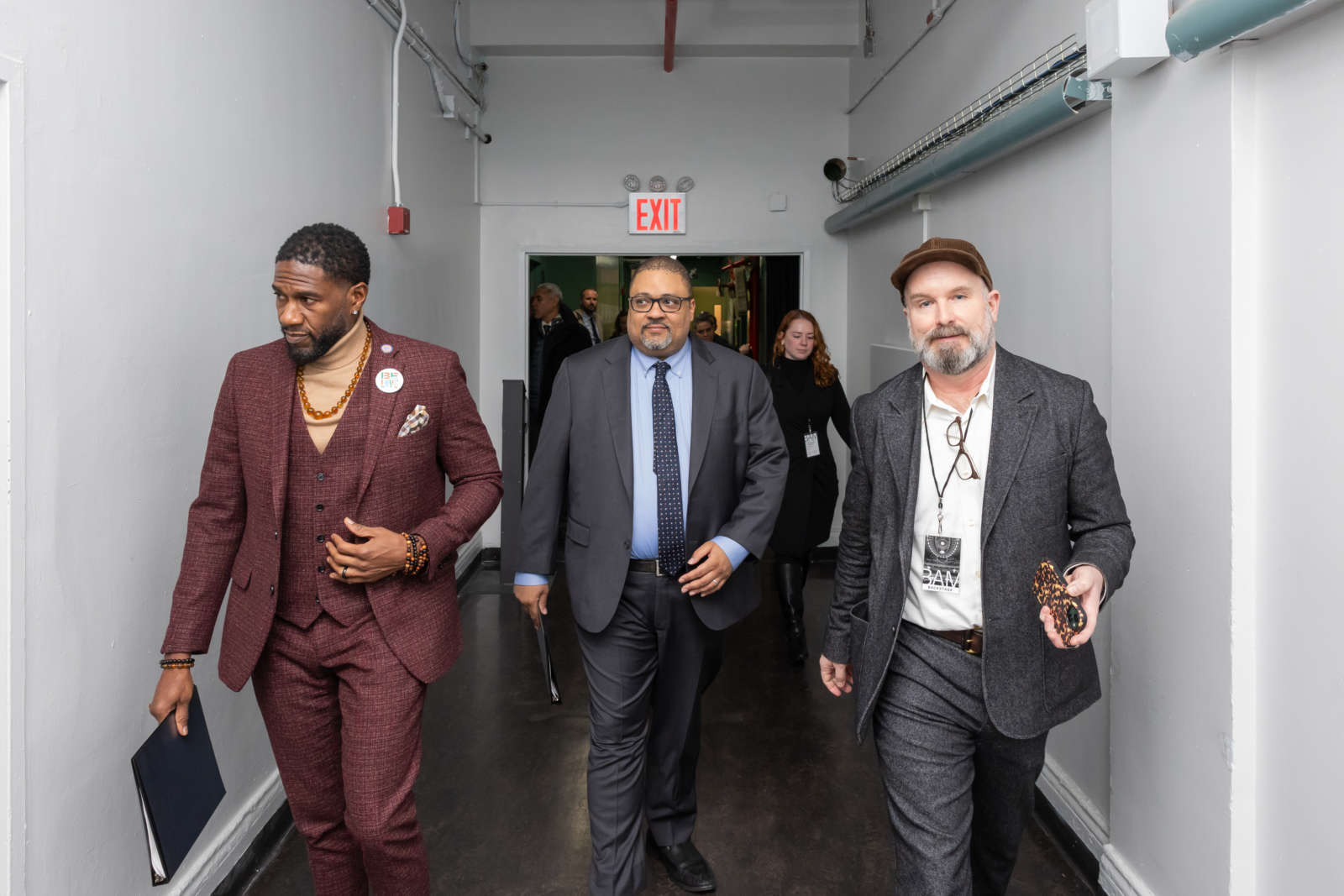
BAM MLK Day Celebration
BAM / 2026
Public Advocate Jumaane Williams, New York County District Attorney Alvin Bragg, and Artistic Director Bryan Doerries backstage.
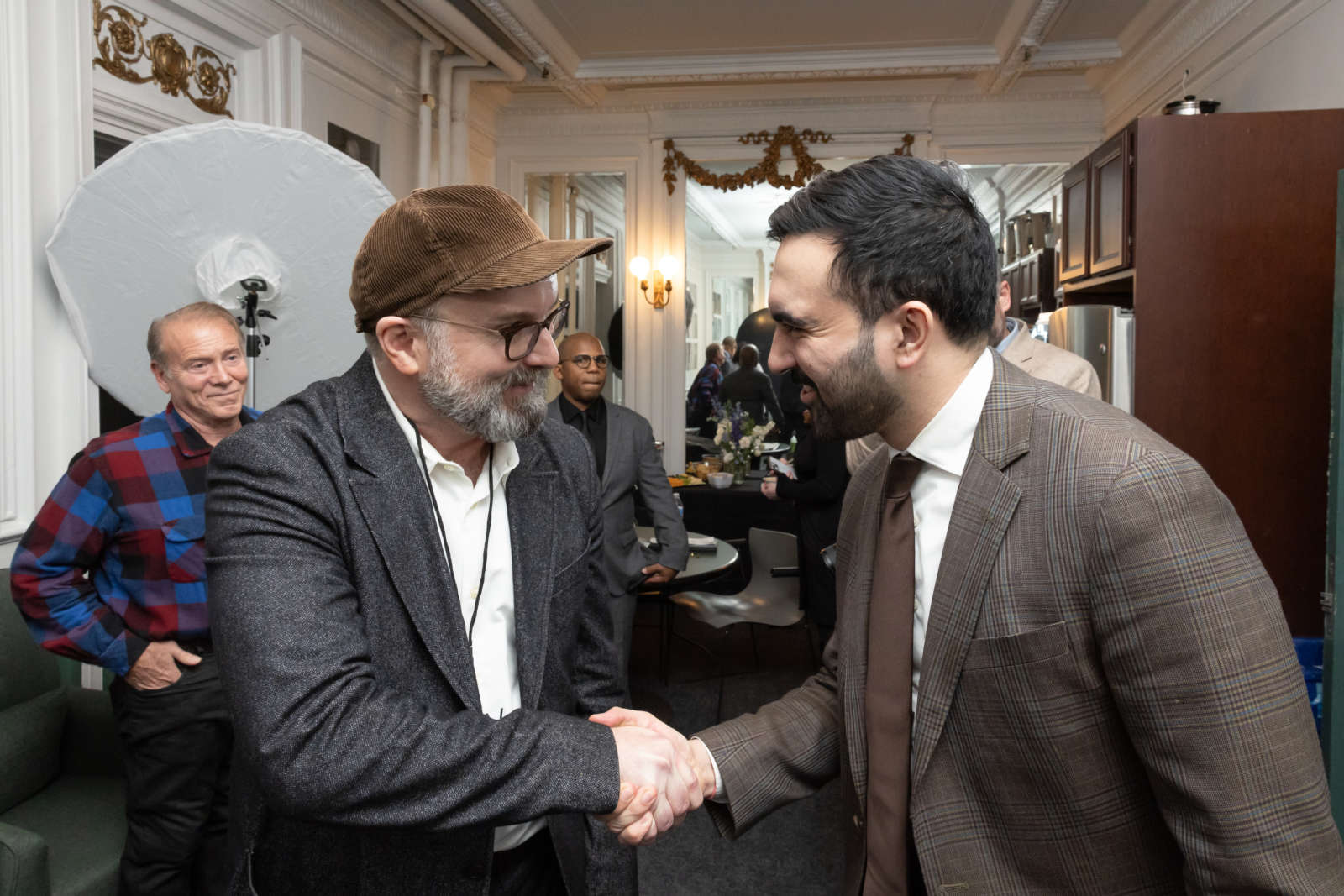
BAM MLK Day Celebration
BAM / 2026
Mayor Zohran Mamdani and Bryan Doerries shake hands before rehearsing.
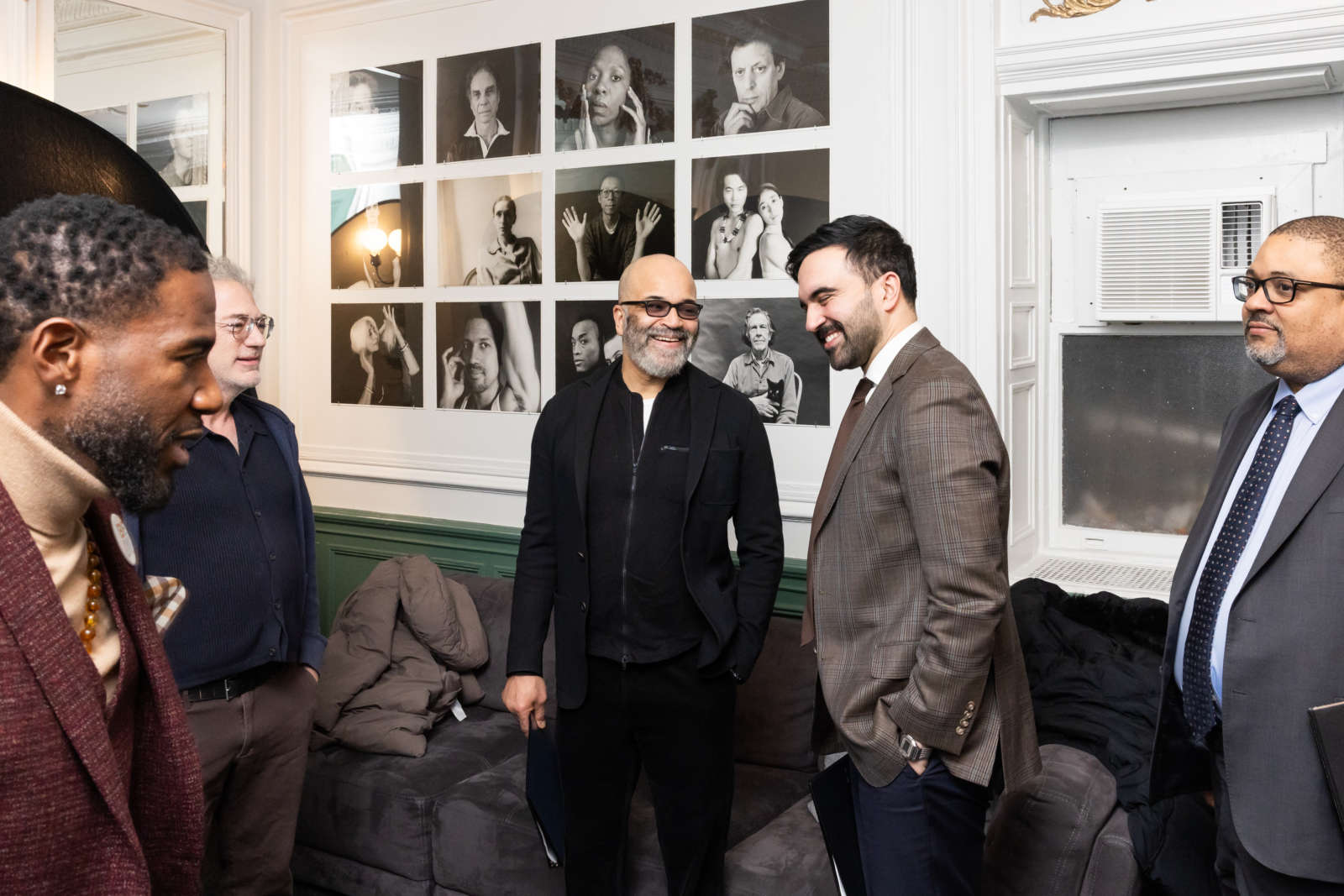
BAM MLK Day Celebration
BAM / 2026
Actor Jeffrey Wright and Mayor Zohran Mamdani backstage.
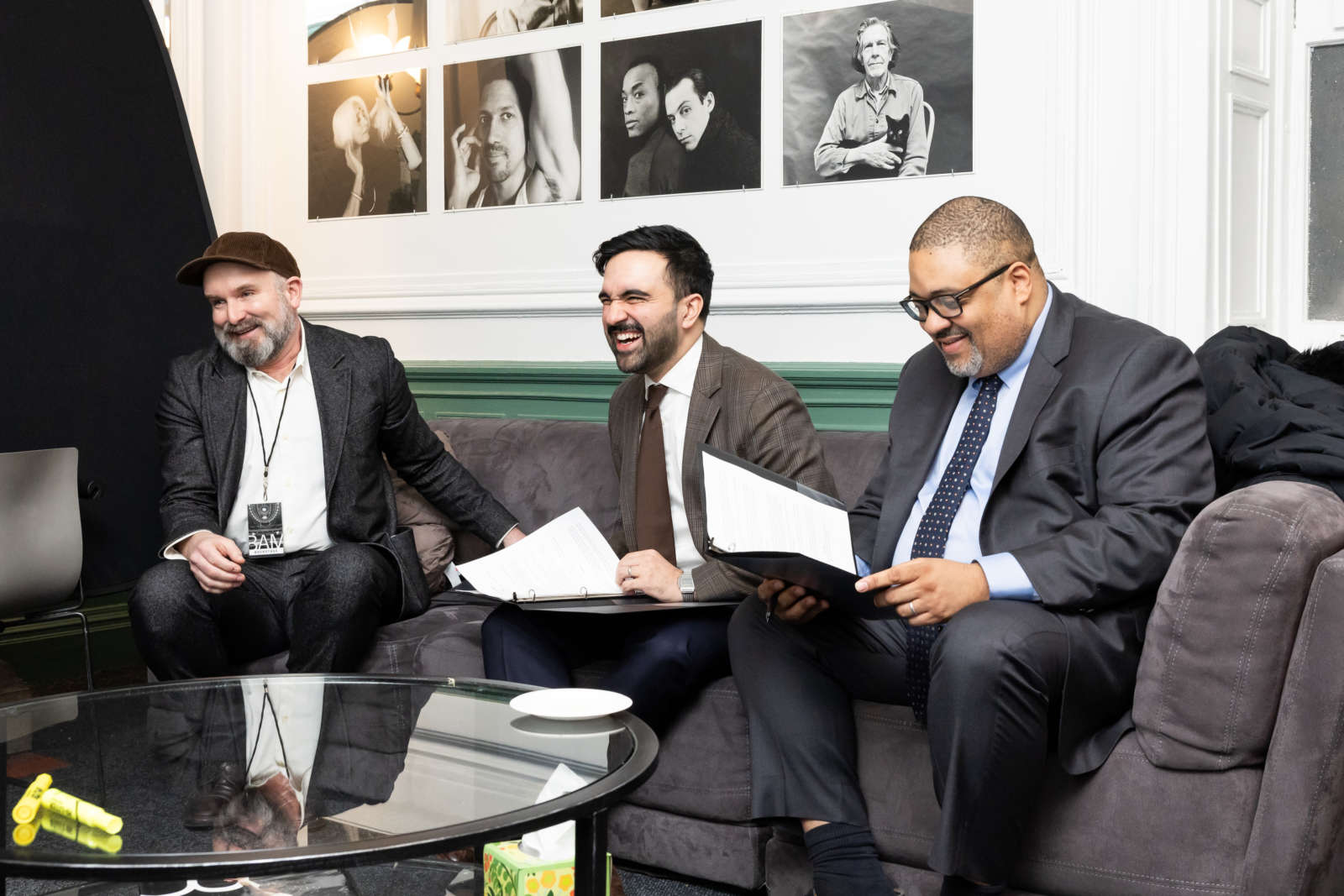
BAM MLK Day Celebration
BAM / 2026
Bryan Doerries, Mayor Zohran Mamdani, and New York County District Attorney Alvin Bragg rehearsing.
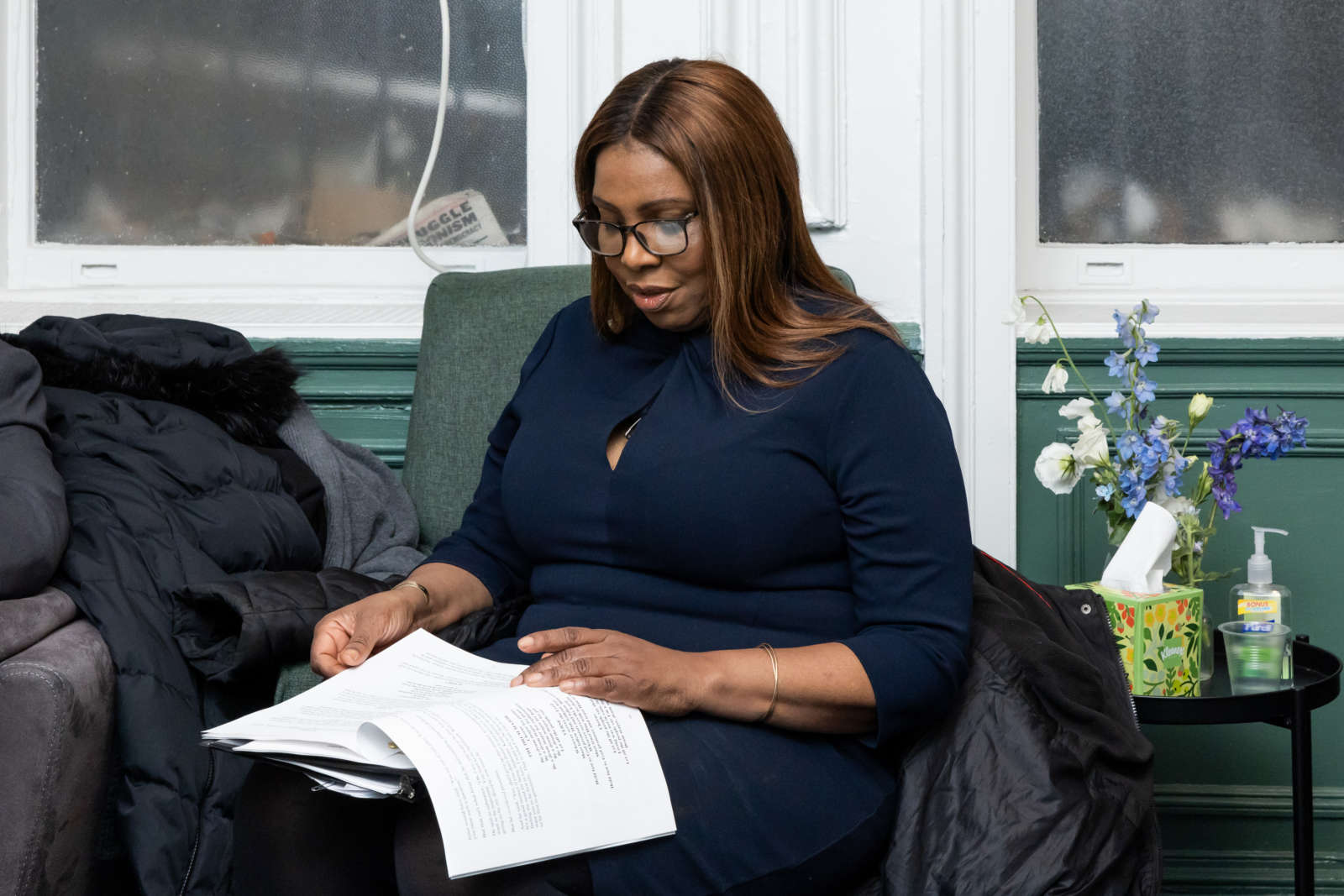
BAM MLK Day Celebration
BAM / 2026
Attorney General of New York Letitia James rehearsing.
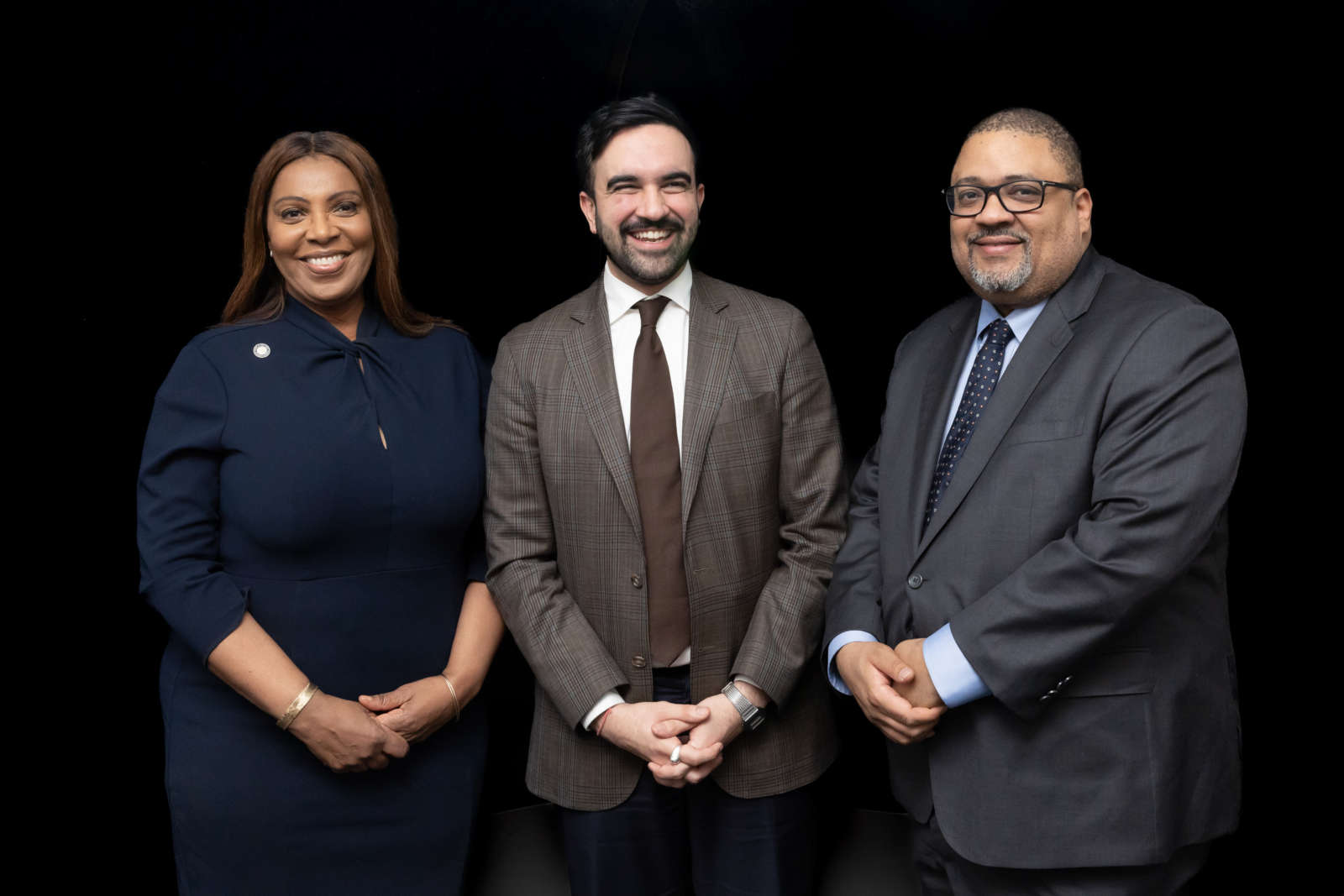
BAM MLK Day Celebration
BAM / 2026
Attorney General of New York Letitia James, Mayor Zohran Mamdani, New York County District Attorney Alvin Bragg backstage

BAM MLK Day Celebration
BAM / 2026
The audience at BAM.
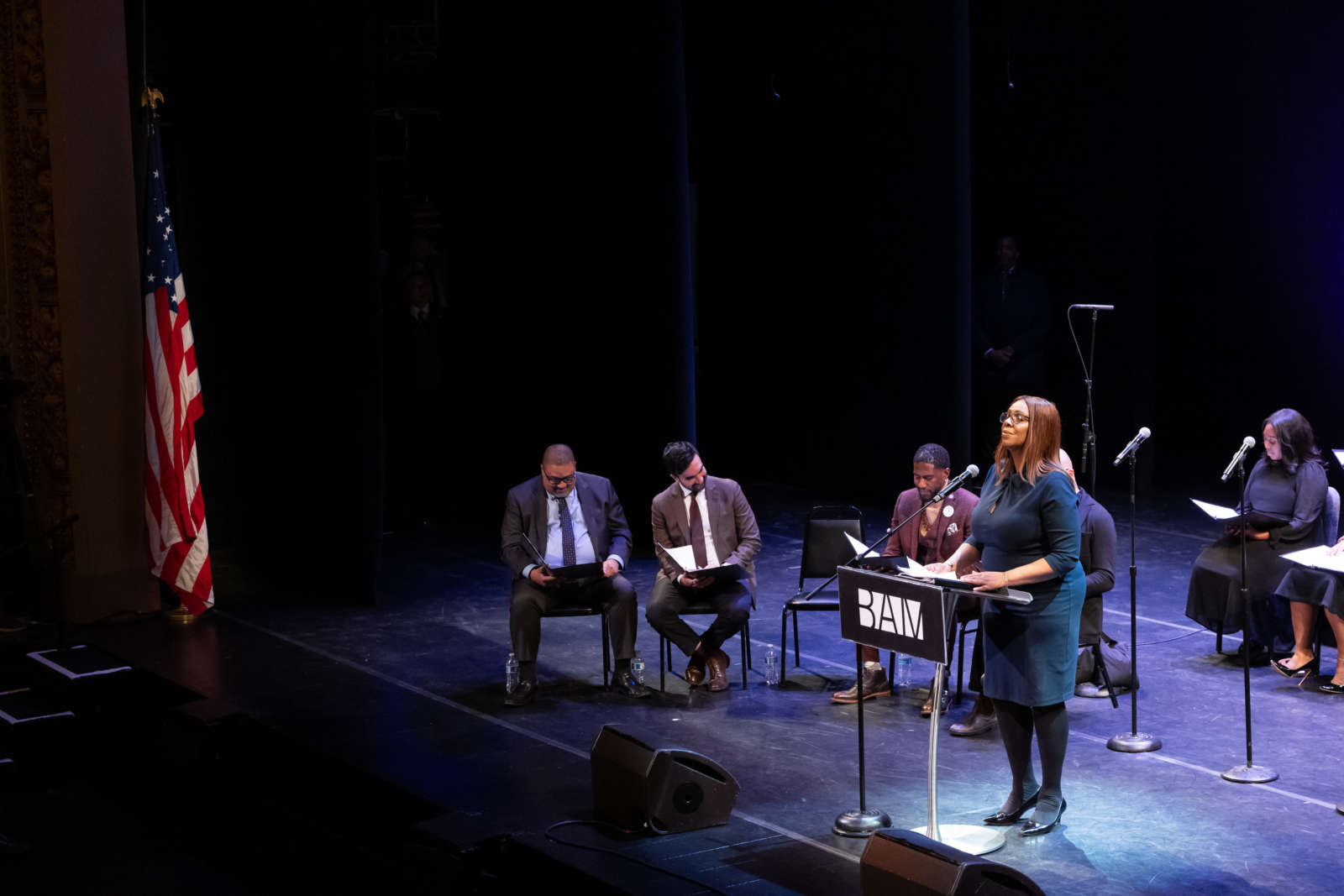
BAM MLK Day Celebration
BAM / 2026
Attorney General of New York Letitia James performs.
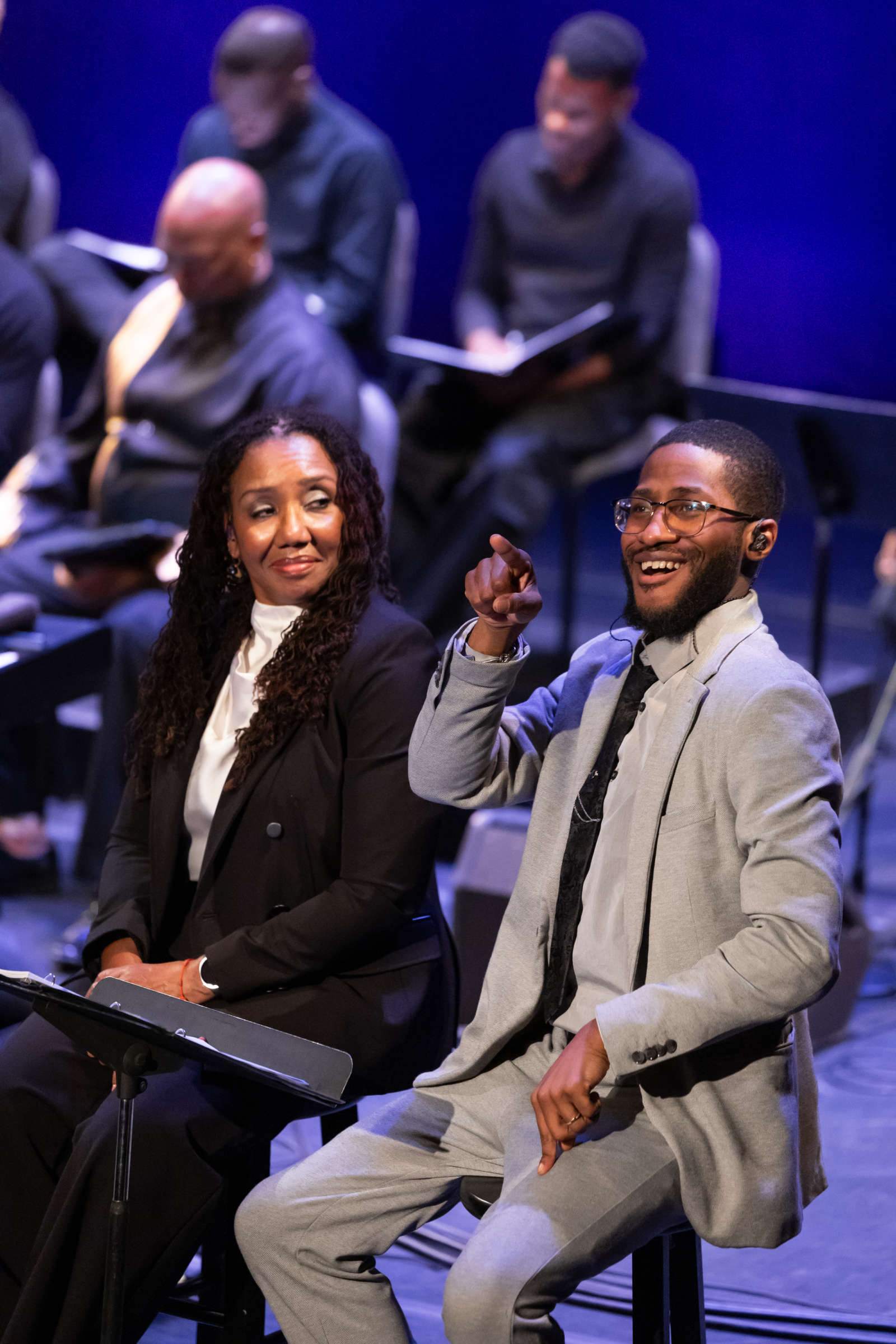
BAM MLK Day Celebration
BAM / 2026
ASL interpreters
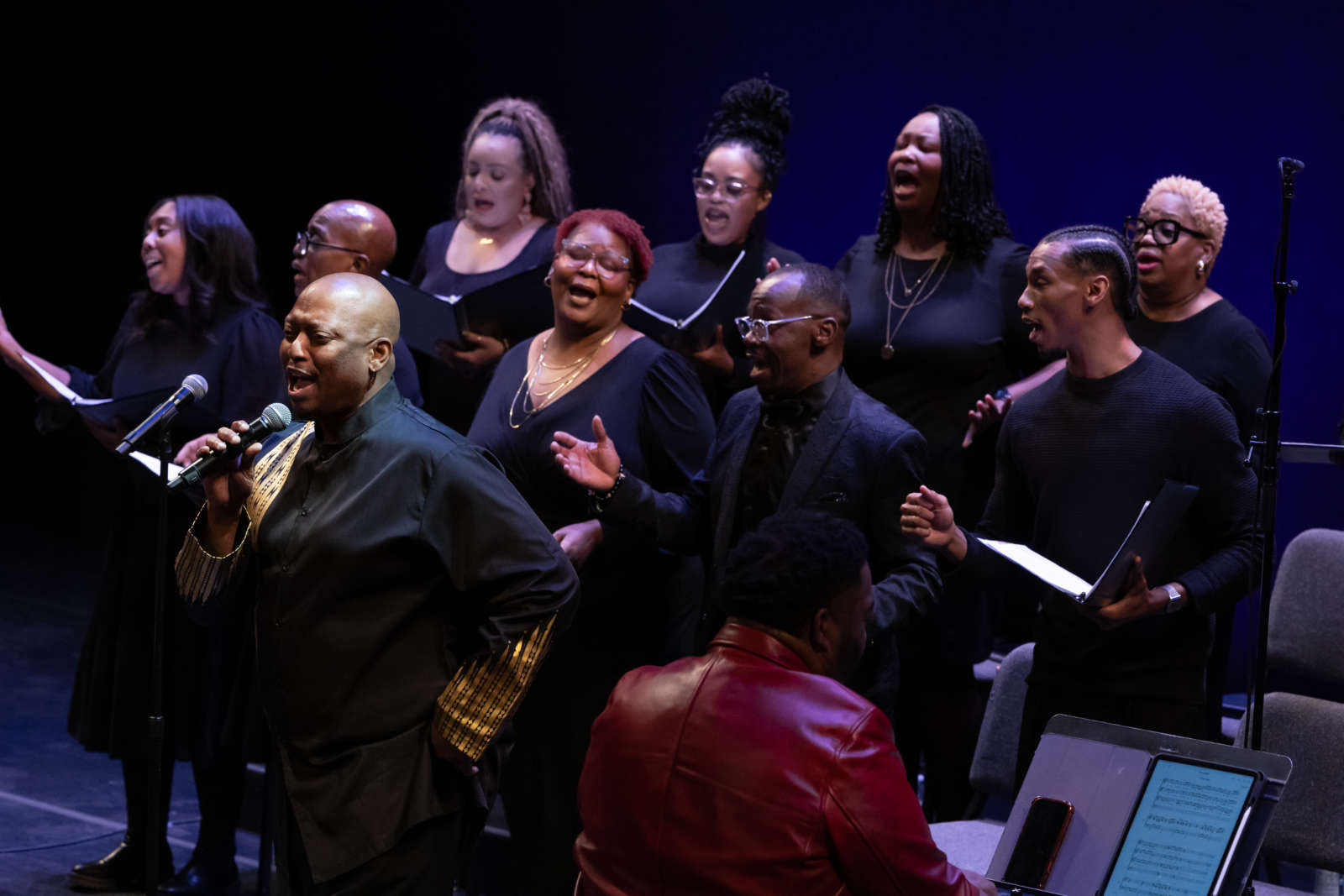
BAM MLK Day Celebration
BAM / 2026
Soloist Duane Martin Foster.
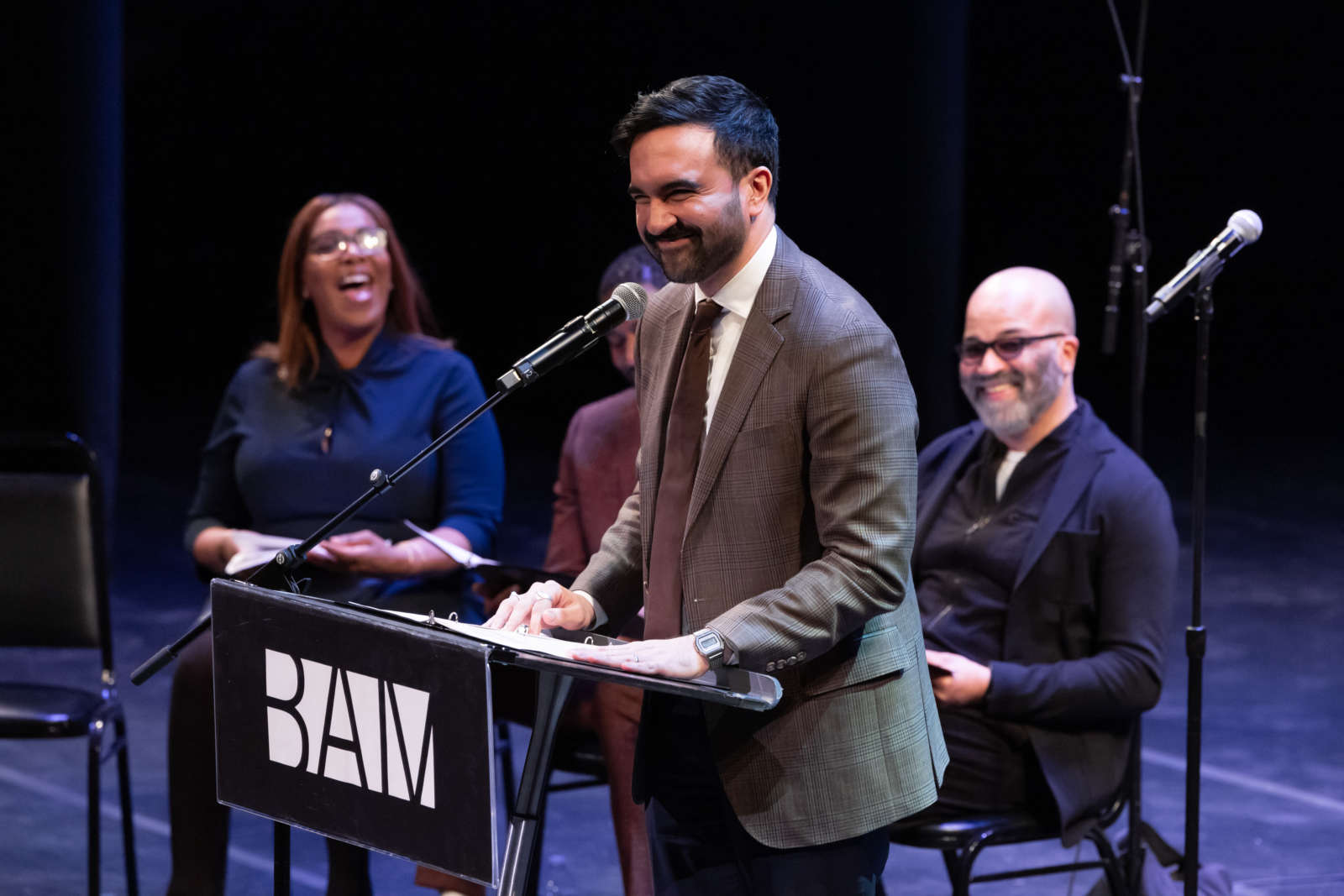
BAM MLK Day Celebration
BAM / 2026
Mayor Zohran Mamdani performs.
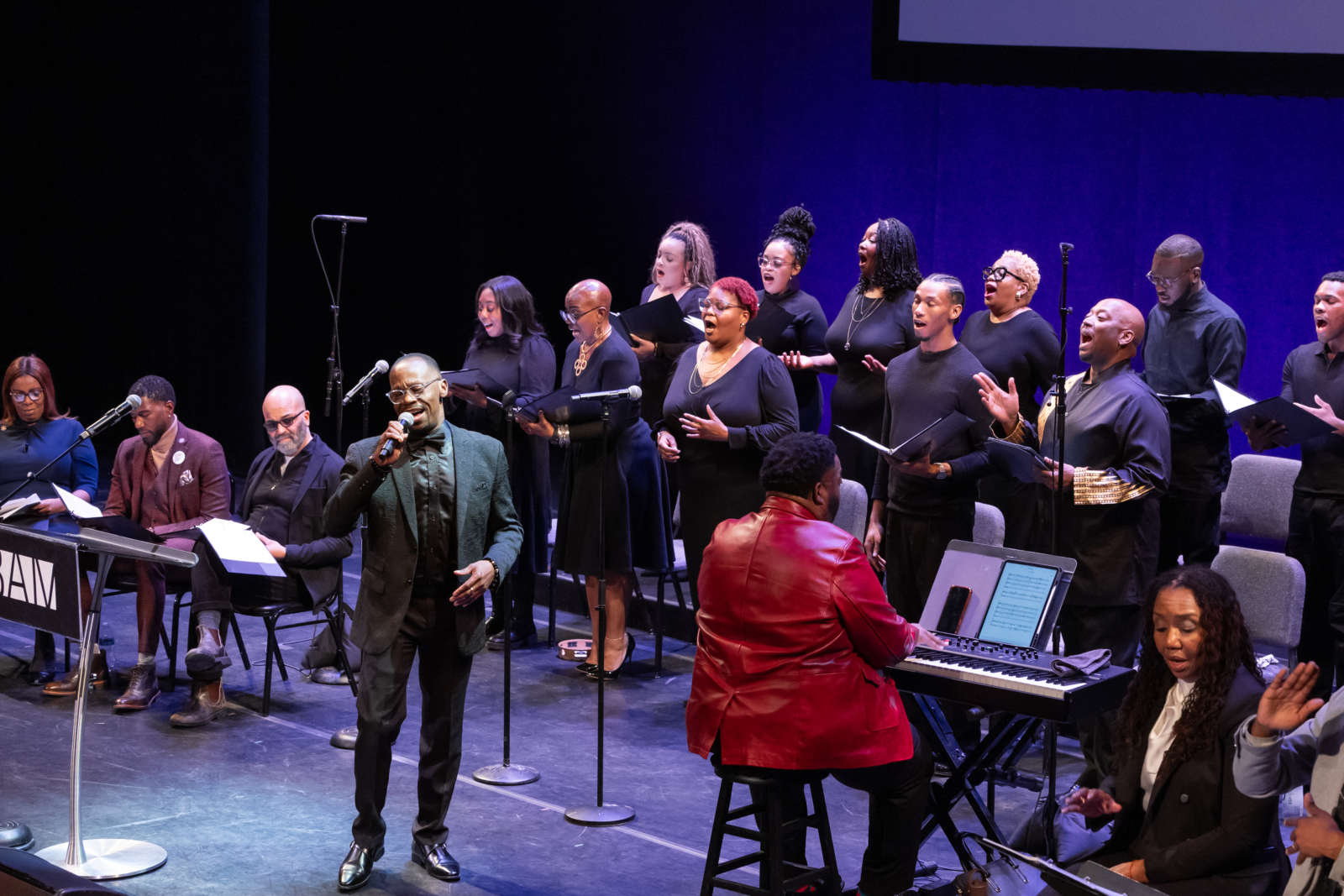
BAM MLK Day Celebration
BAM / 2026
Soloist John Leggett sings.
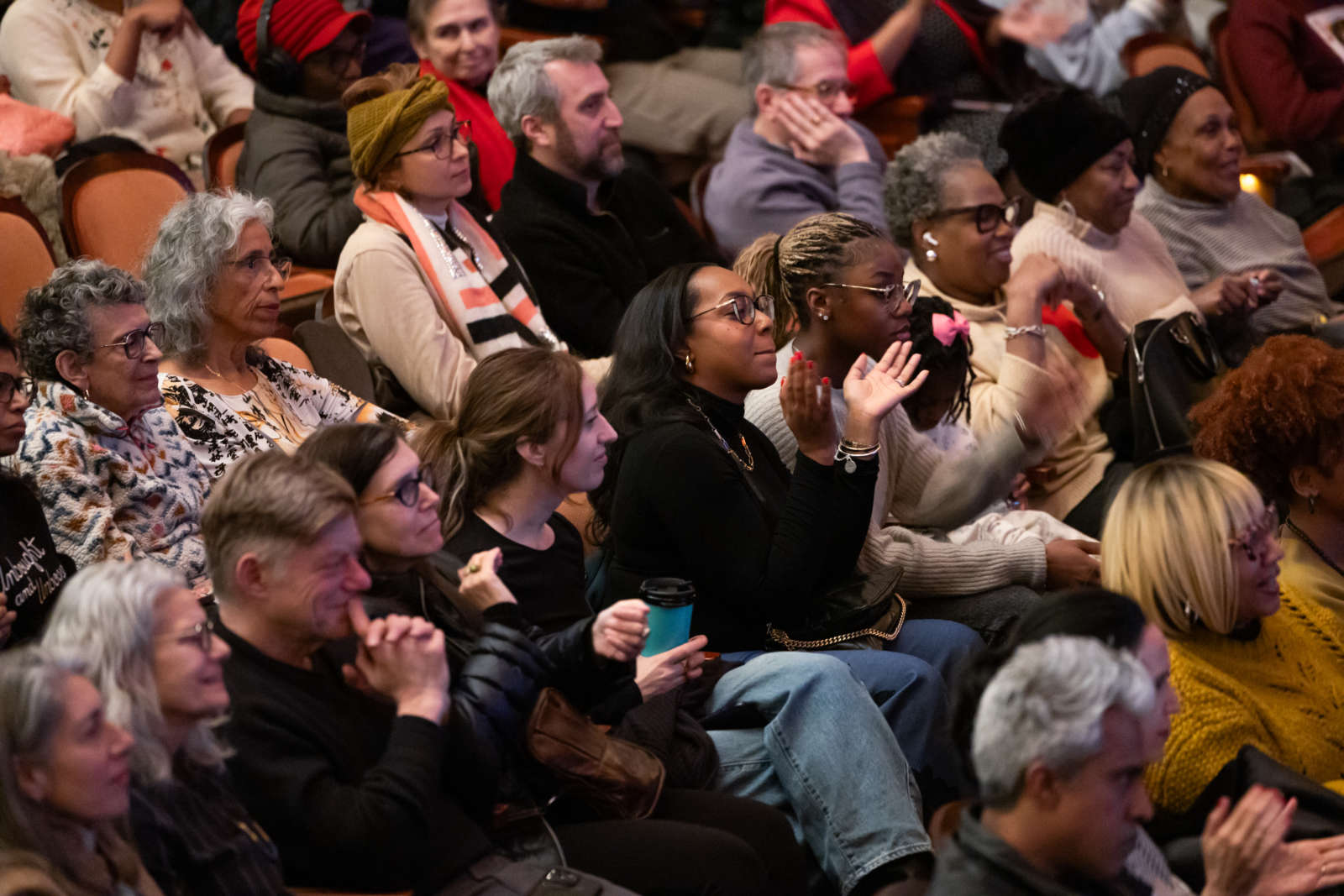
Audience at BAM MLK Day Celebration
BAM / 2026
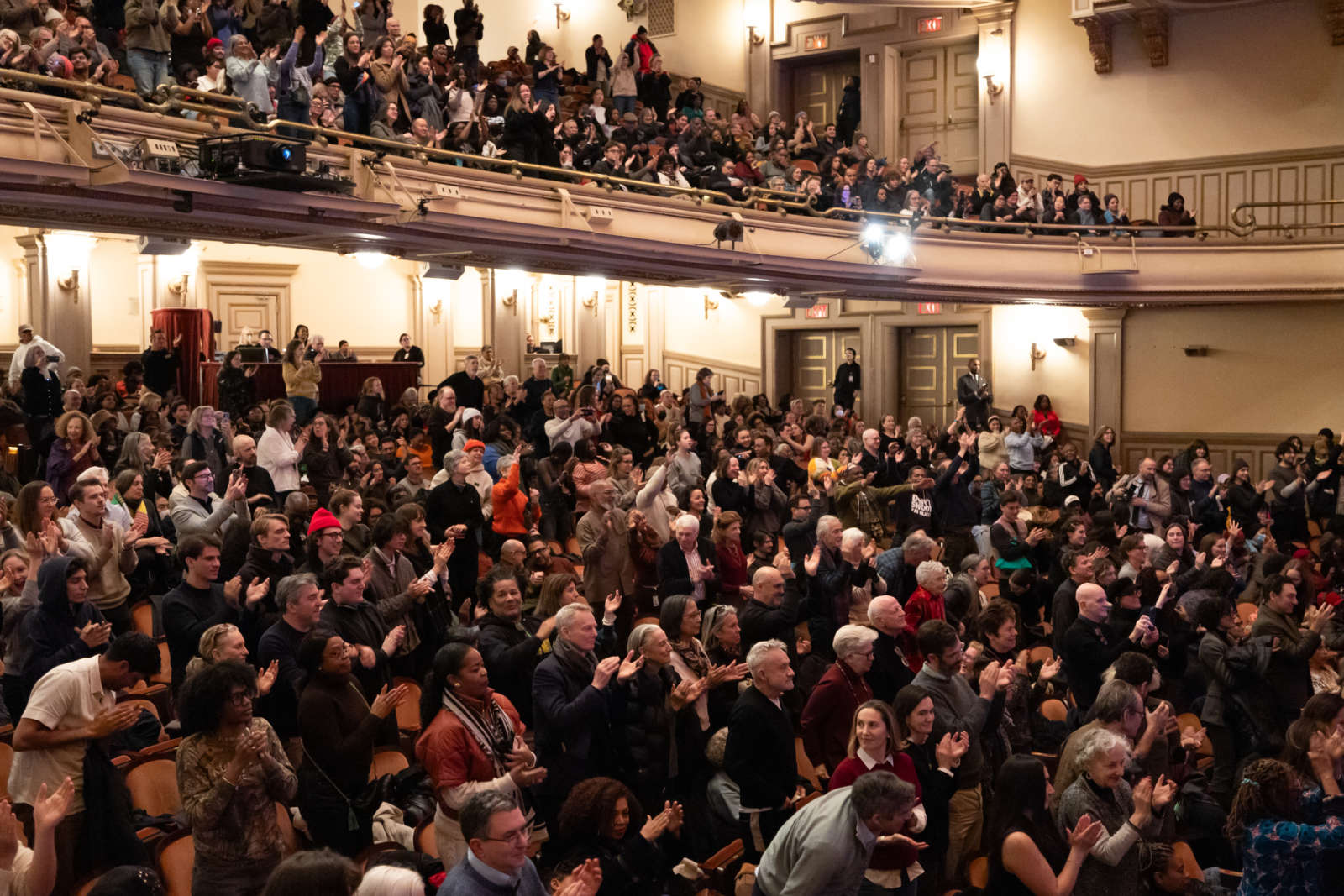
Audience at BAM MLK Day Celebration
BAM / 2026
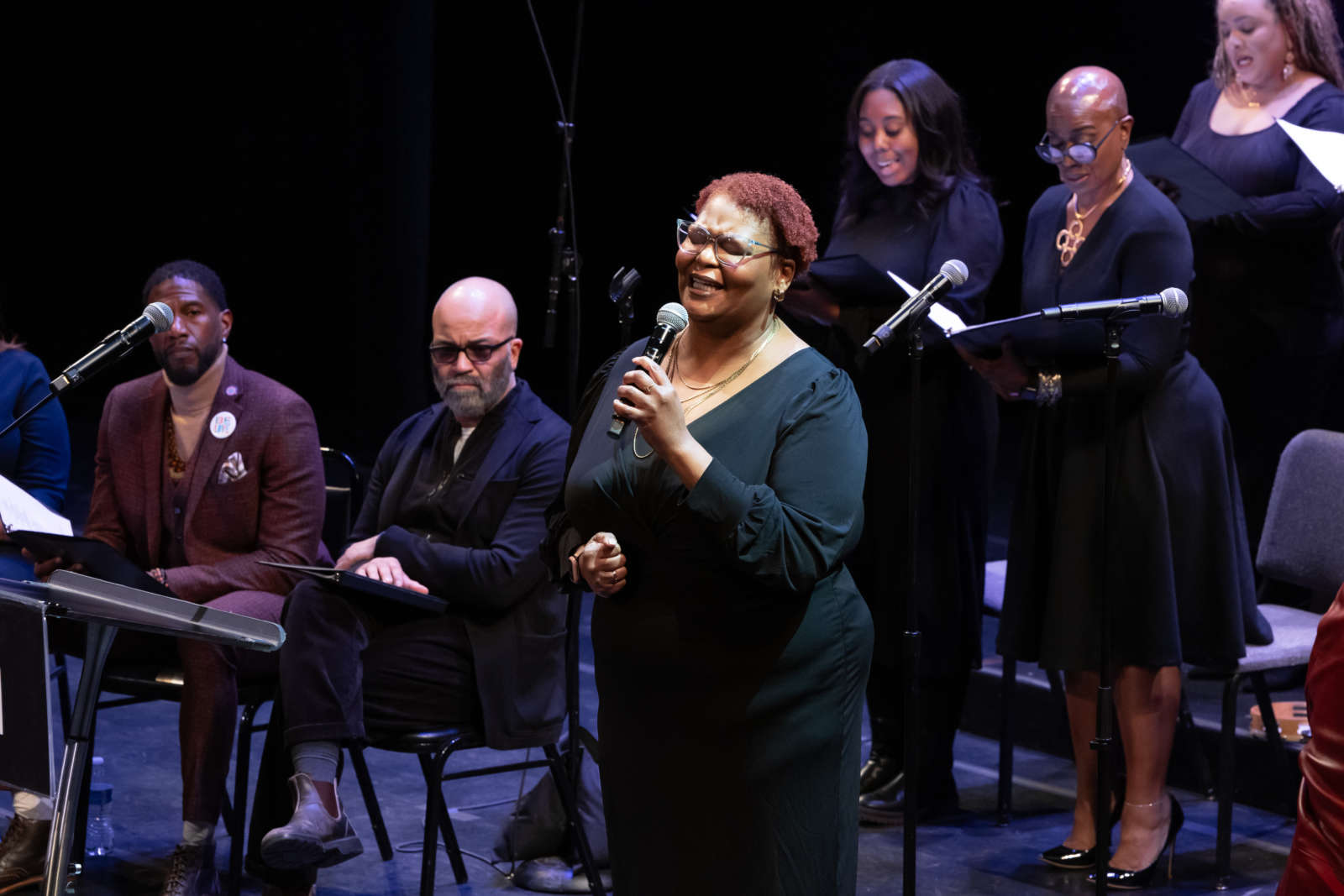
BAM MLK Day Celebration
BAM / 2026
Soloists De-Rance Blaylock sing.
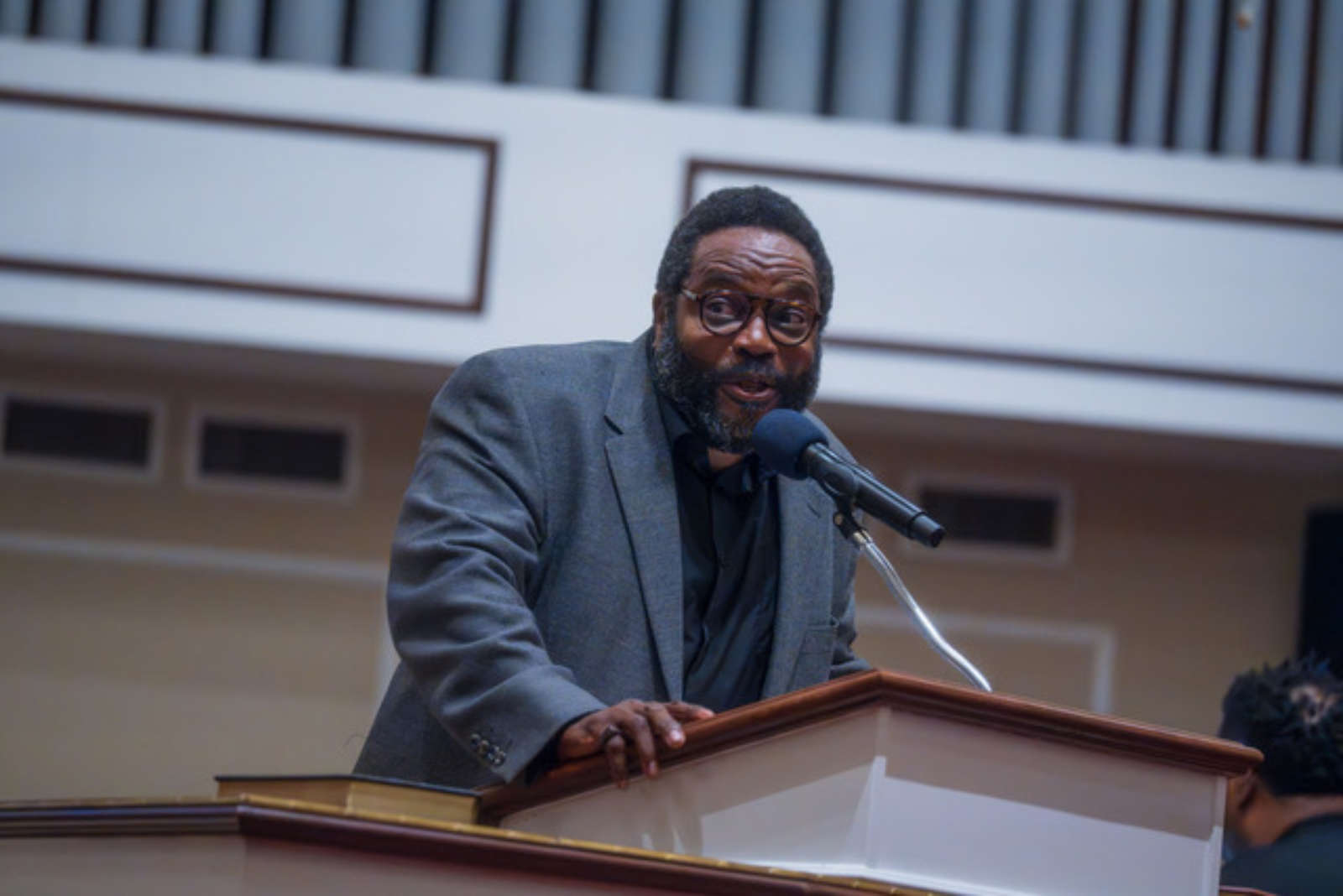
Chad Coleman delivers Dr. King's Sermon
New Sunny Mount Missionary Baptist Church, St. Louis, Missouri / 2024
Chad Coleman delivers Dr. King's Sermon "The Drum Major Instinct"
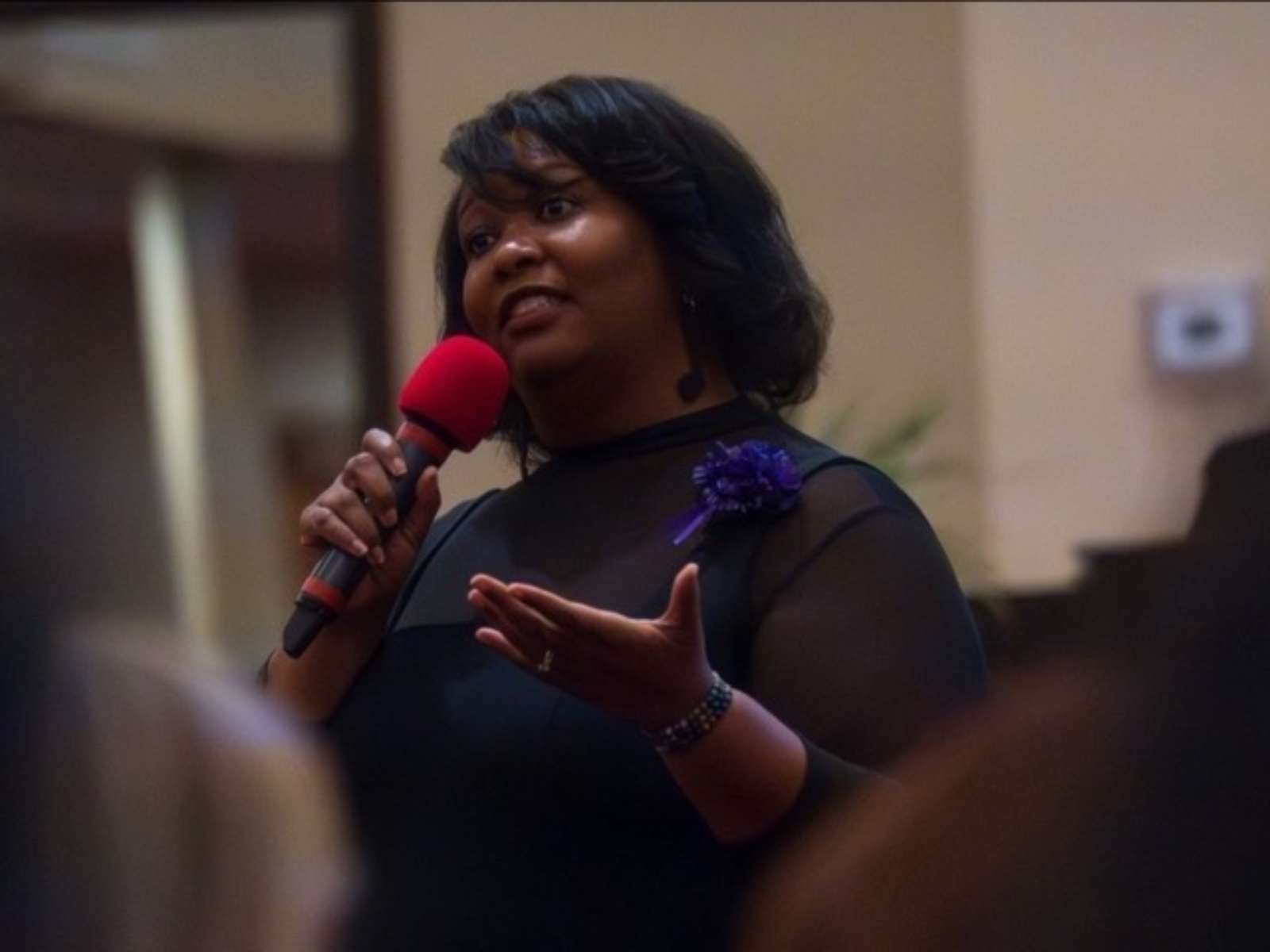
De-Andrea Blaylock Solar co-facilitates
New Sunny Mount Missionary Baptist Church, St. Louis, Missouri / 2024
De-Andrea Blaylock Solar co-facilitates the audience discussion with Bryan Doerries.
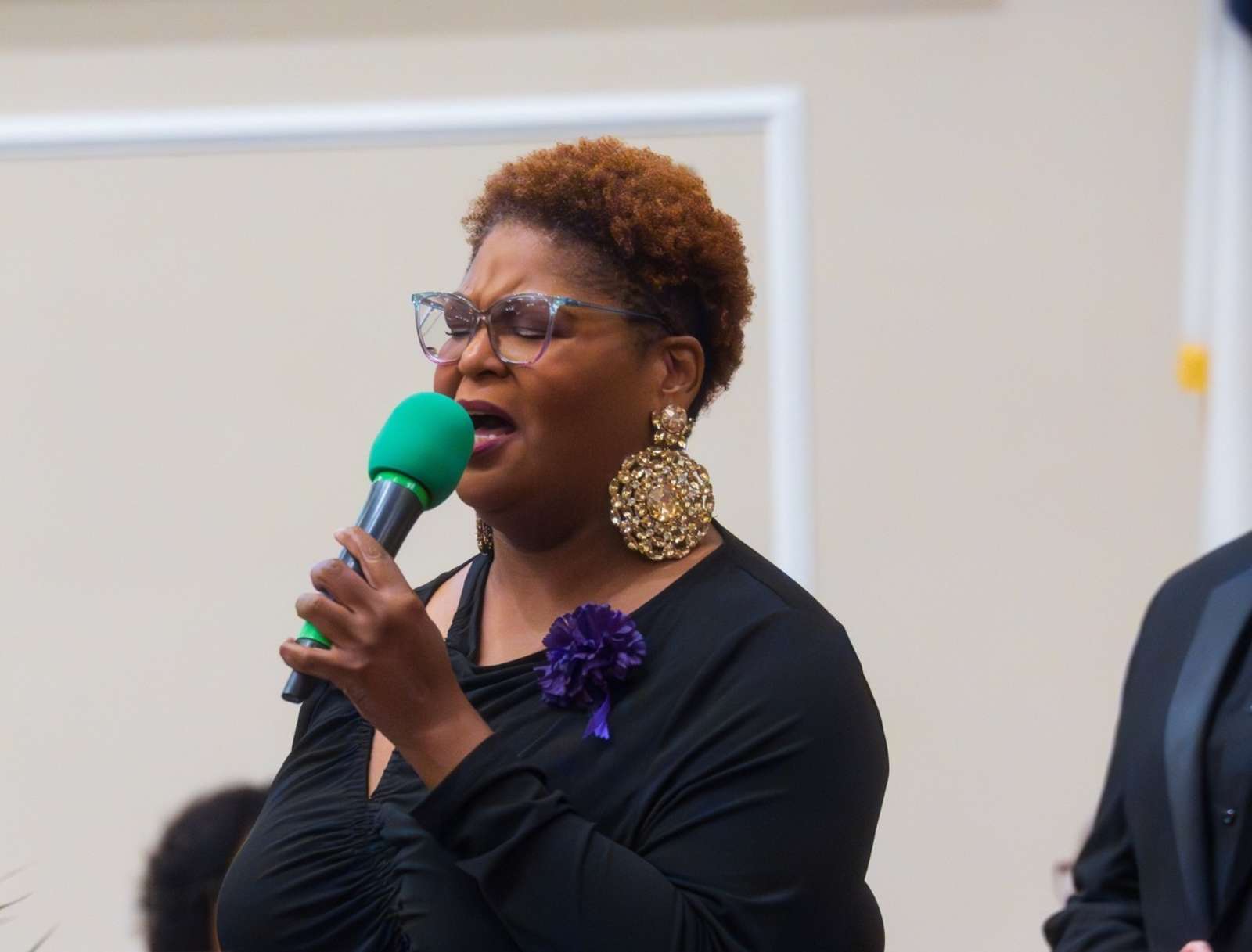
Soloist De-Rance Blaylock
New Sunny Mount Missionary Baptist Church, St. Louis, Missouri / 2024
Soloist De-Rance Blaylock delivers a soul stirring performance as a lead soloist in The Drum Major instinct
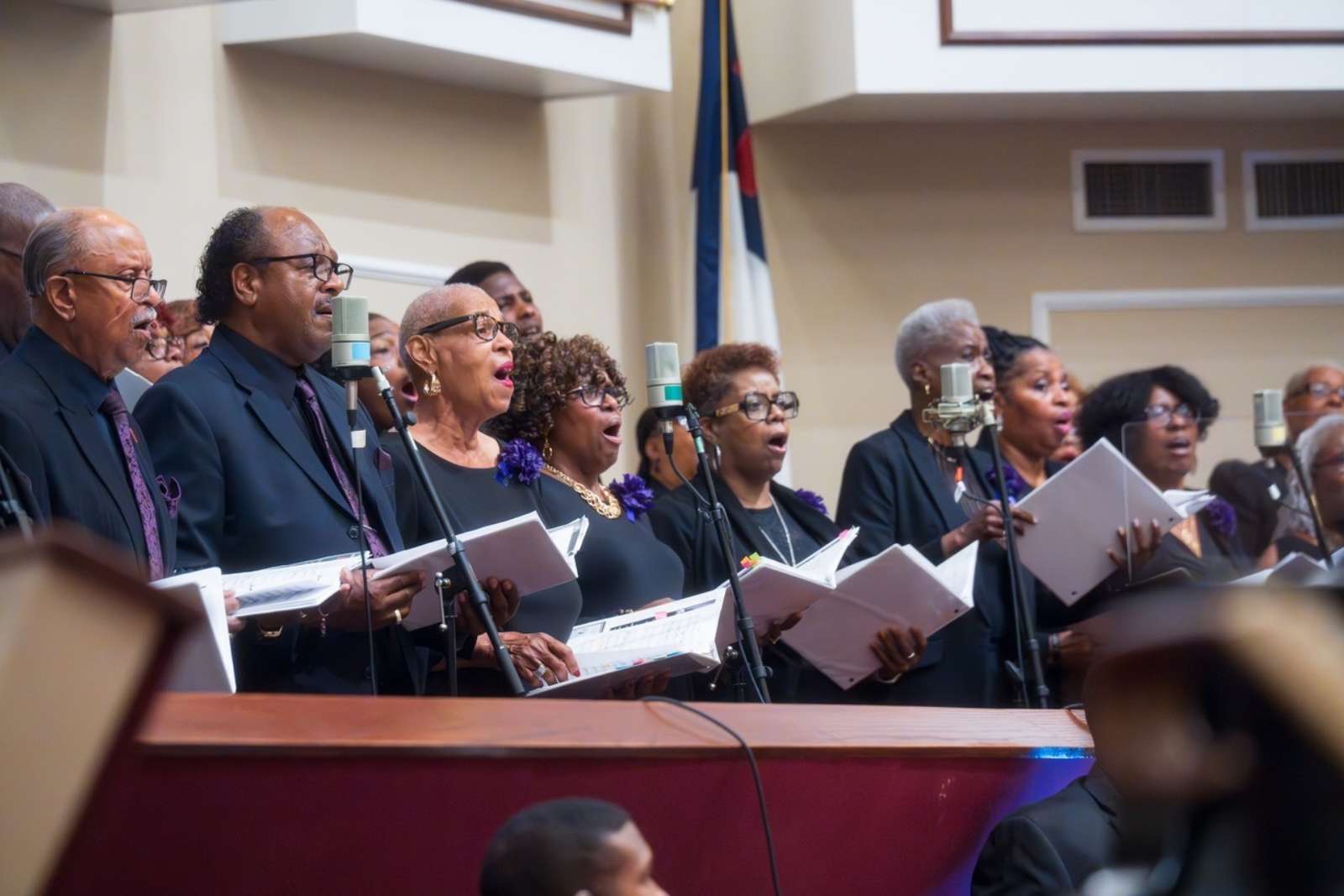
The Phil Woodmore Singers and the New Sunny Mount MBC Mass Choir
New Sunny Mount Missionary Baptist Church, St. Louis, Missouri / 2024
The Phil Woodmore Singers and the New Sunny Mount MBC Mass Choir lead by Dr. Philip A. Woodmore.
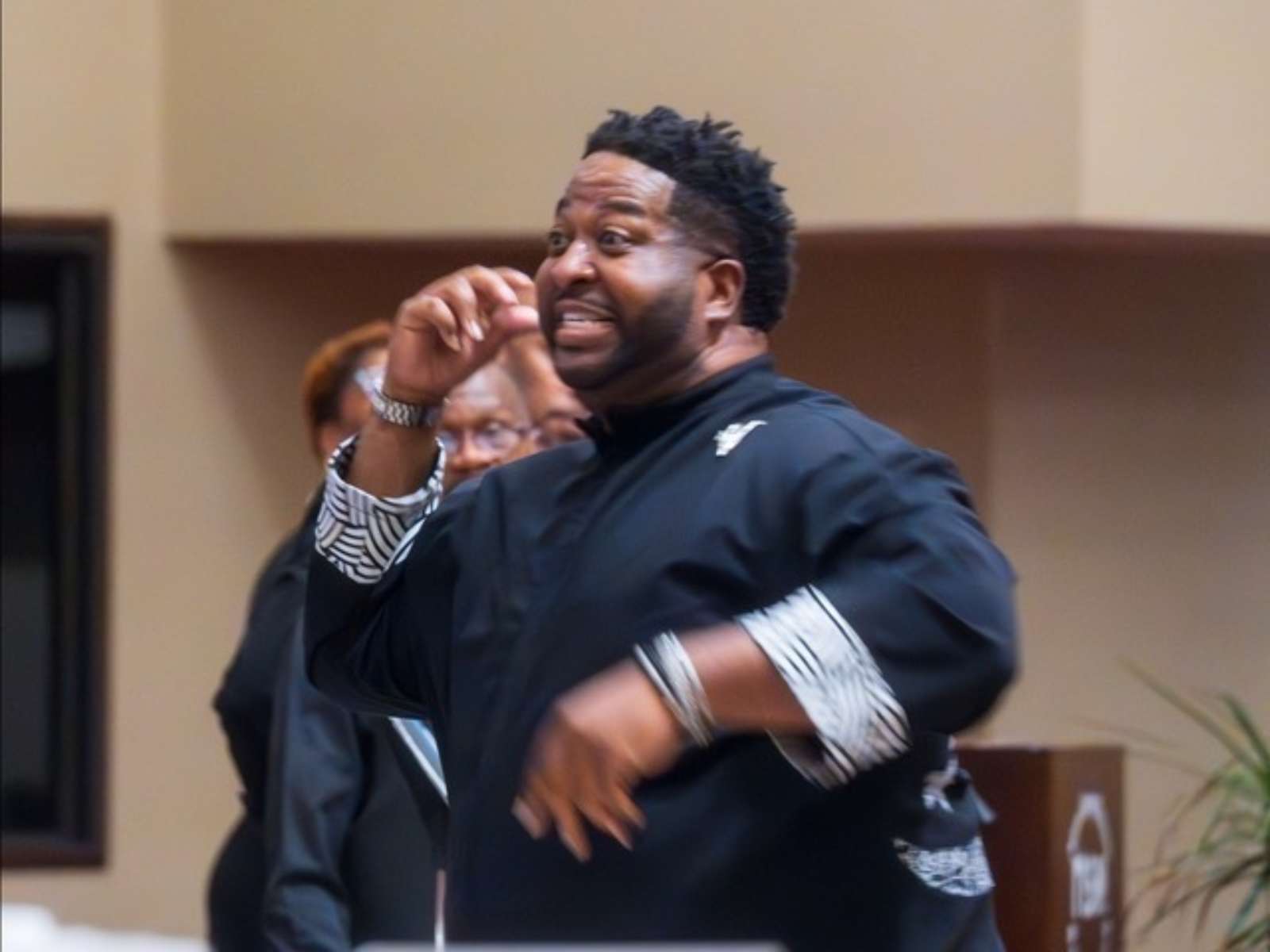
Dr. Philip A. Woodmore
New Sunny Mount Missionary Baptist Church, St. Louis, Missouri / 2024
Thank you to Dr. Philip A. Woodmore for his charismatic leadership and his brilliant conducting! Phil composed and arranged the music for this special project and brings together a composite choir of people from many walks of life.
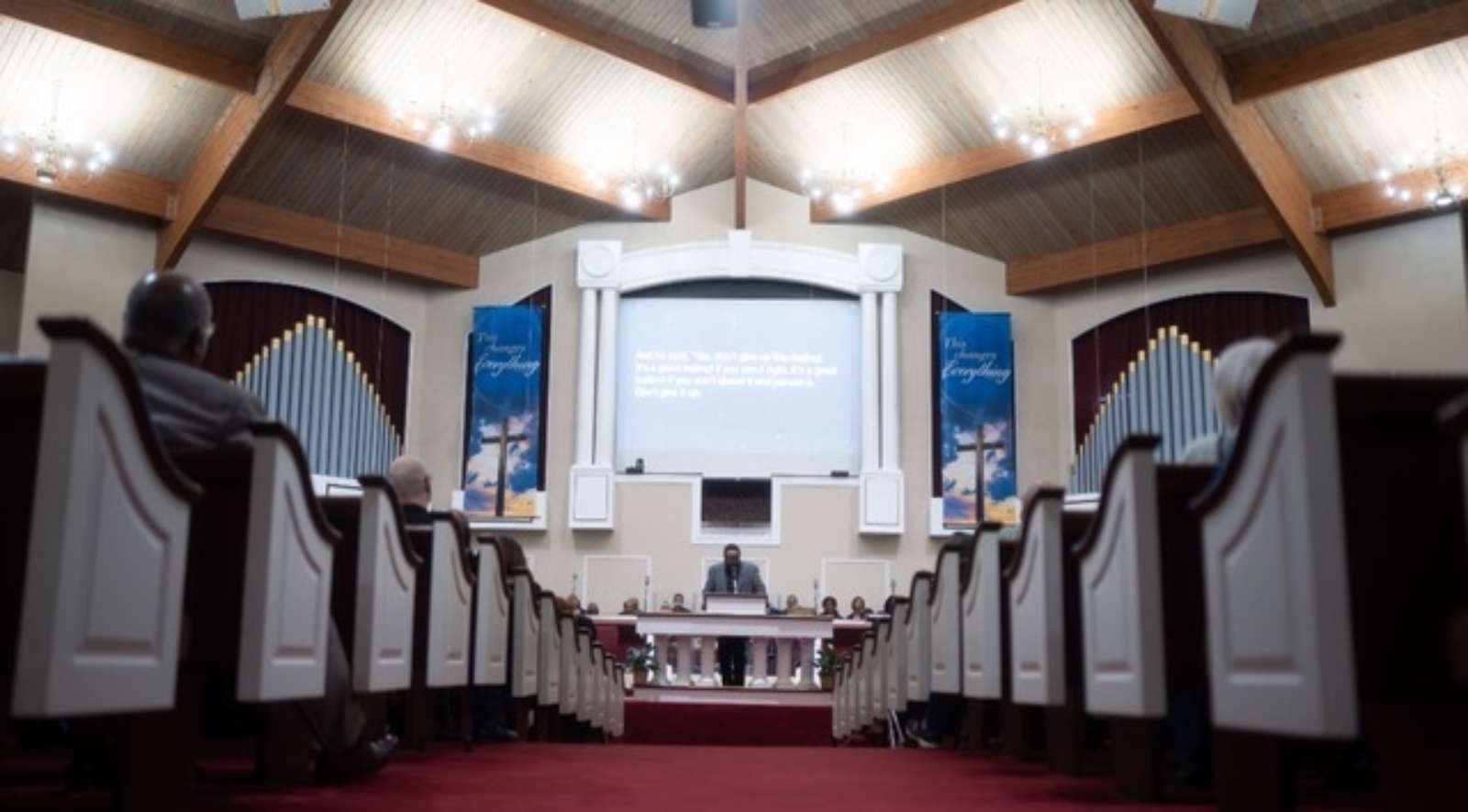
New Sunny Mount Missionary Baptist Church
St. Louis, Missouri / 2024
New Sunny Mount Missionary Baptist Church graciously hosted a special performance of The Drum Major Instinct as part of the Cultural Week of Action on Race and Democracy presented by Race Forward, and Americans for the Arts.
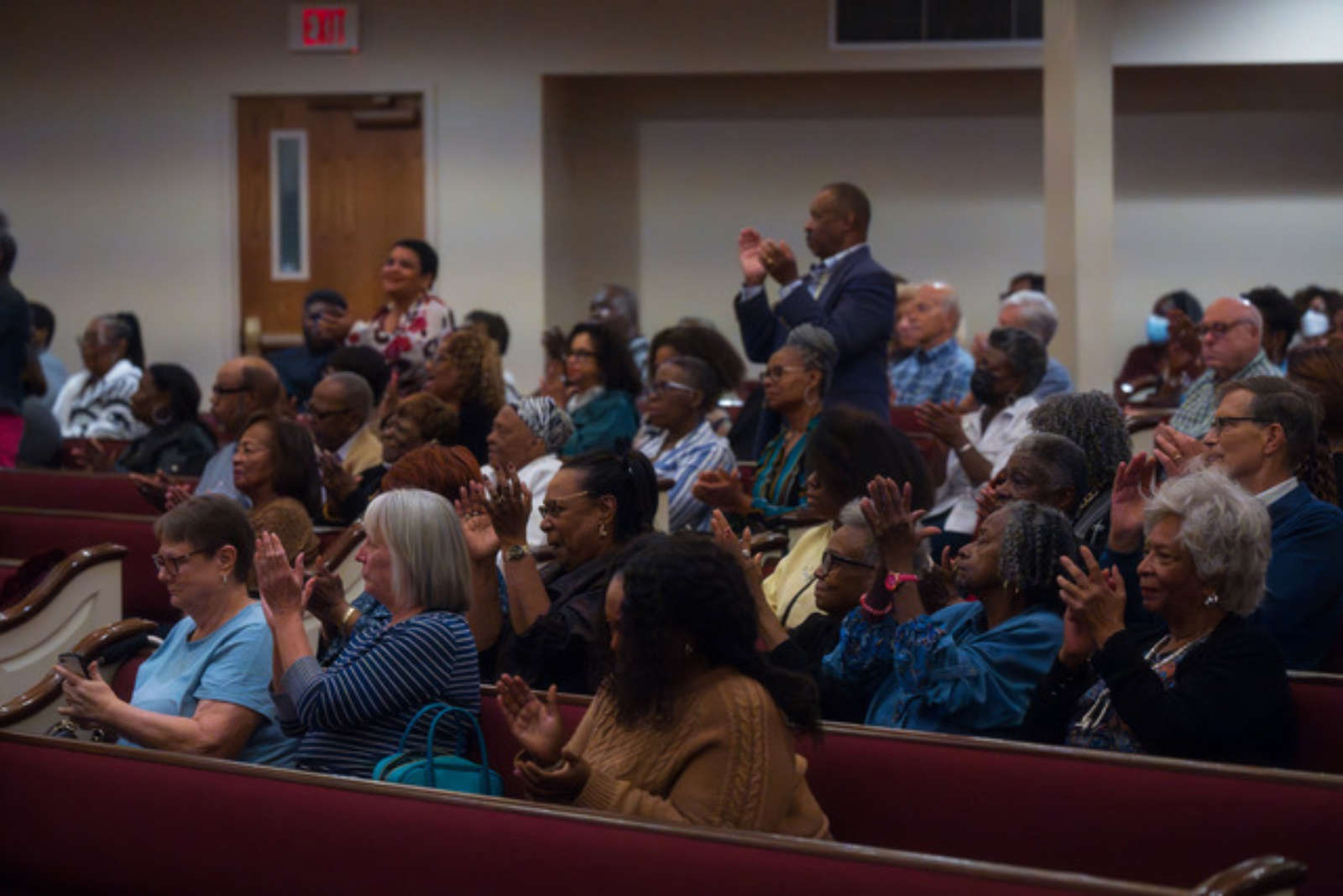
The Audience
New Sunny Mount Missionary Baptist Church, St. Louis, Missouri / 2024
Race Forward, and Americans for the Arts for invited Theater of War productions to take part in the Cultural Week of Action on Race and Democracy. We presented The Drum Major Instinct, featuring performances by Chad Coleman (The Wire, The Walking Dead), The Phil Woodmore Singers and the New Sunny Mount MBC Mass Choir, and soloists De-Rance Blaylock, Duane Foster, and John Leggett. Thank you to the audience members who joined us in person and the hundreds more from the United States, Canada, Ireland, Germany, France who joined us on Zoom. The audience in-person and on zoom participated in an expansive conversation that was catalyzed by Dr. King’s sermon and Phil Woodmore’s music. The room was full of compassion, openness, and kindness!
"Be Steadfast" Antigone in Ferguson Virtual Choir
2020
Theater of War Productions is honored to share this virtual offering, performed by the Antigone in Ferguson Choir, directed by composer Dr. Philip Woodmore, and led by John Leggette. The singers and musicians featured in this video include educators, students, activists, social workers, members of the faith community, and police officers from St. Louis, Missouri; Richmond, Virginia; and New York City who have made the commitment to sing together in order to start powerful, uncomfortable, transformative discussions about systemic oppression.
The song, “Be Steadfast,” written by Dr. Philip Woodmore for the project The Drum Major Instinct, is a powerful call to action at the end of the Dr. Martin Luther King, Jr.’s sermon that serves as a collective response to King’s interrogation of racism, capitalism, militarism, white supremacy, and injustice. Dr. Edwina Moss, personal secretary and friend to Dr. Martin Luther King, Jr., responded to our project at a performance in Baltimore, Maryland in 2018, saying, "Be uncomfortable. It's all right to be uncomfortable. But if we're on this planet, and if we don't open the conversation, we will perish on this planet.”
We offer “Be Steadfast” for interpretation and discussion, with the hope that it will comfort the afflicted and afflict the comfortable
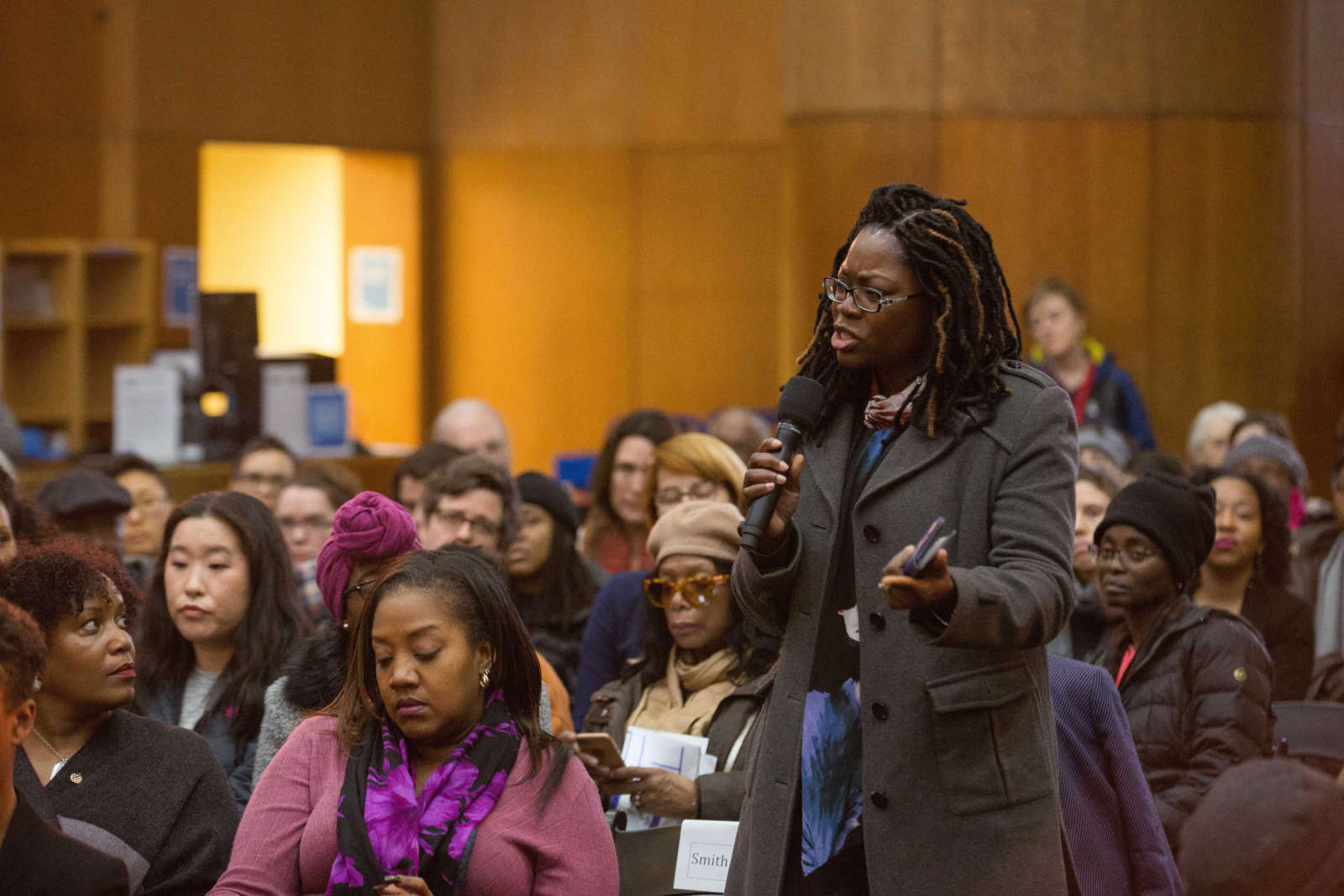
Audience member speaks at The Drum Major Instinct
Brooklyn Public Library, Grand Army Plaza / 2018
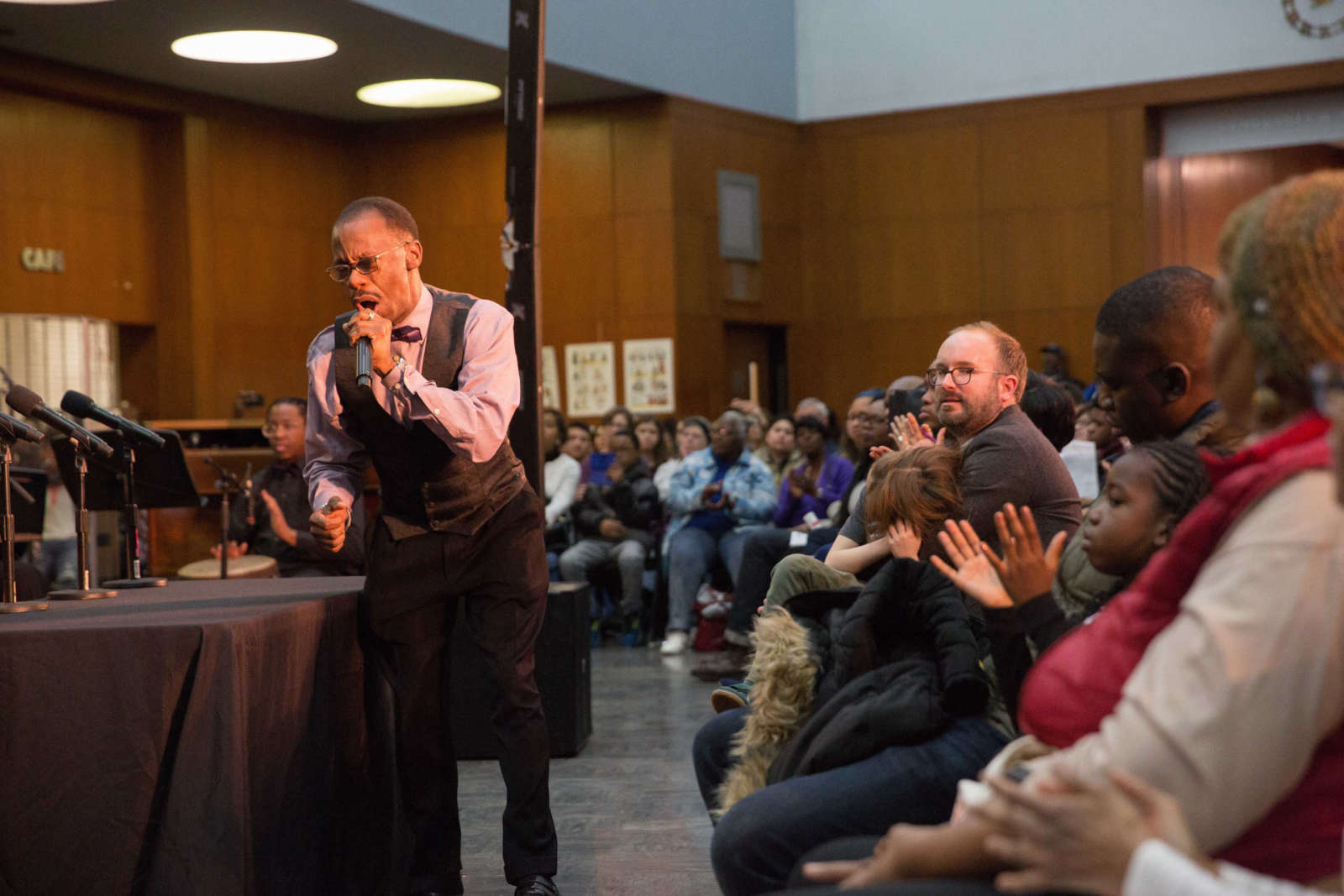
John Leggette sings in The Drum Major Instinct
Brooklyn Public Library, Grand Army Plaza / 2018
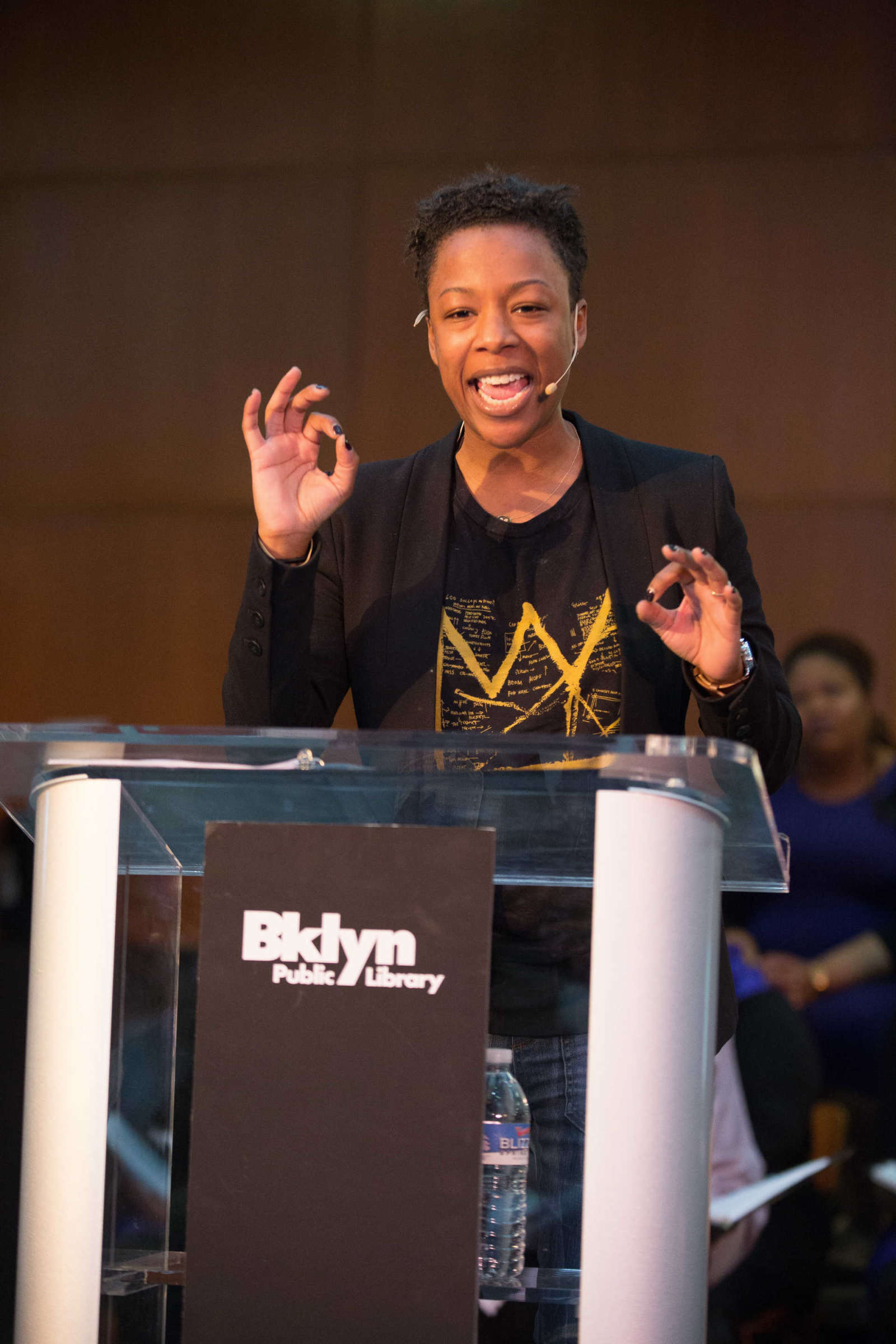
Samira Wiley performs the Drum Major Instinct
Brooklyn Public Library, Grand Army Plaza / 2018
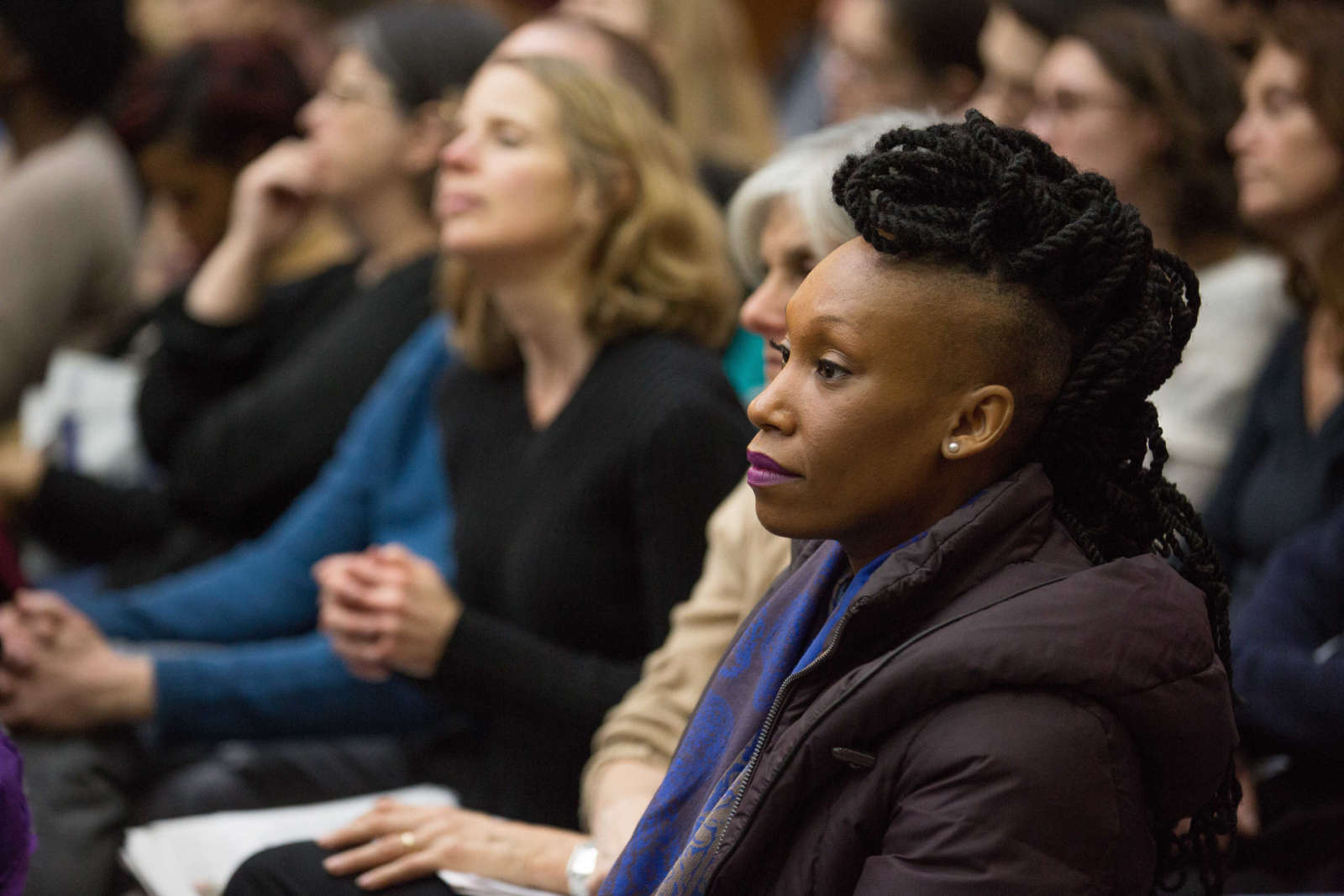
Audience members listen during The Drum Major Instinct
Brooklyn Public Library, Grand Army Plaza / 2014
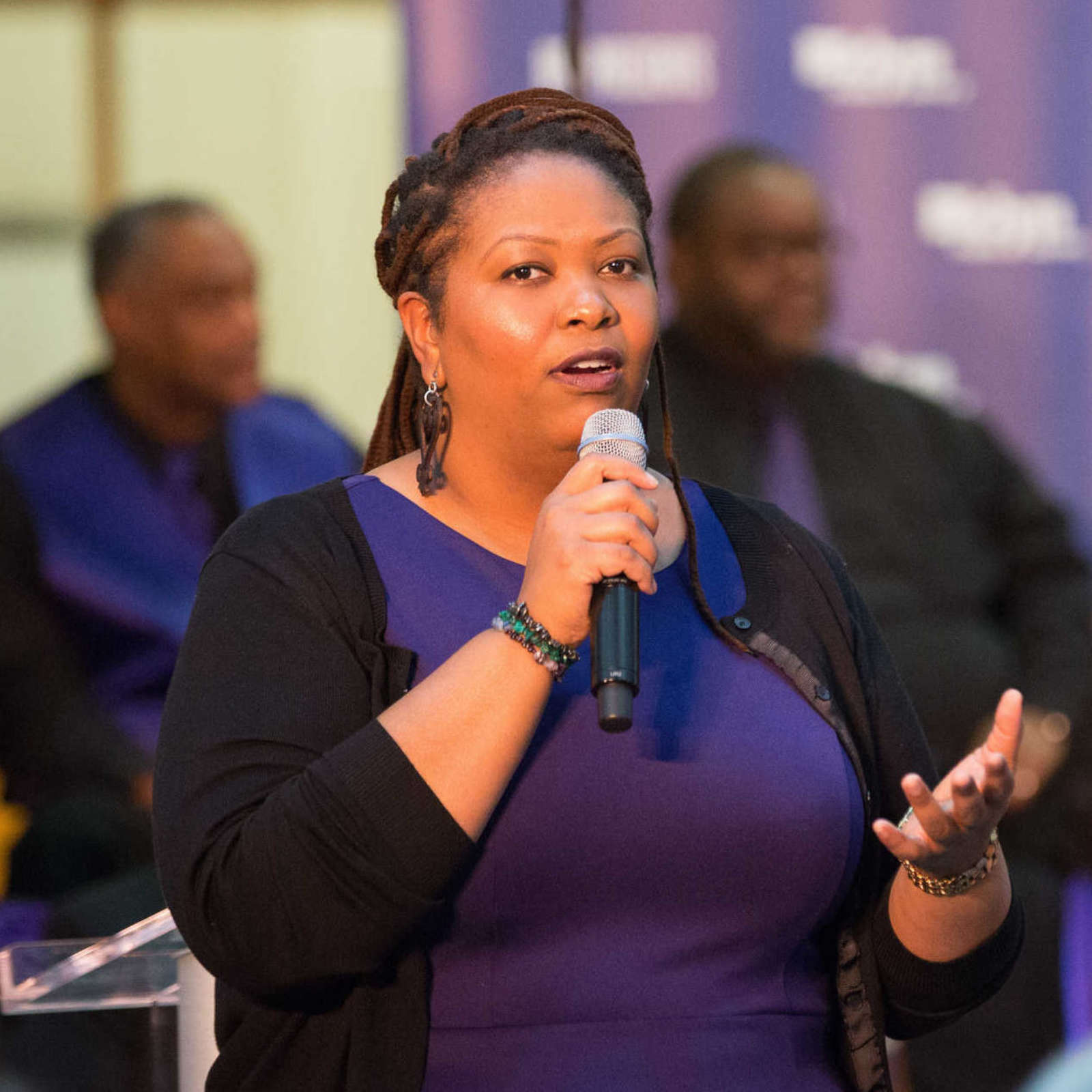
De-Andrea Blaylock-Johnson co-facilitates The Drum Major Instinct discussion
Brooklyn Public Library, Grand Army Plaza / 2018
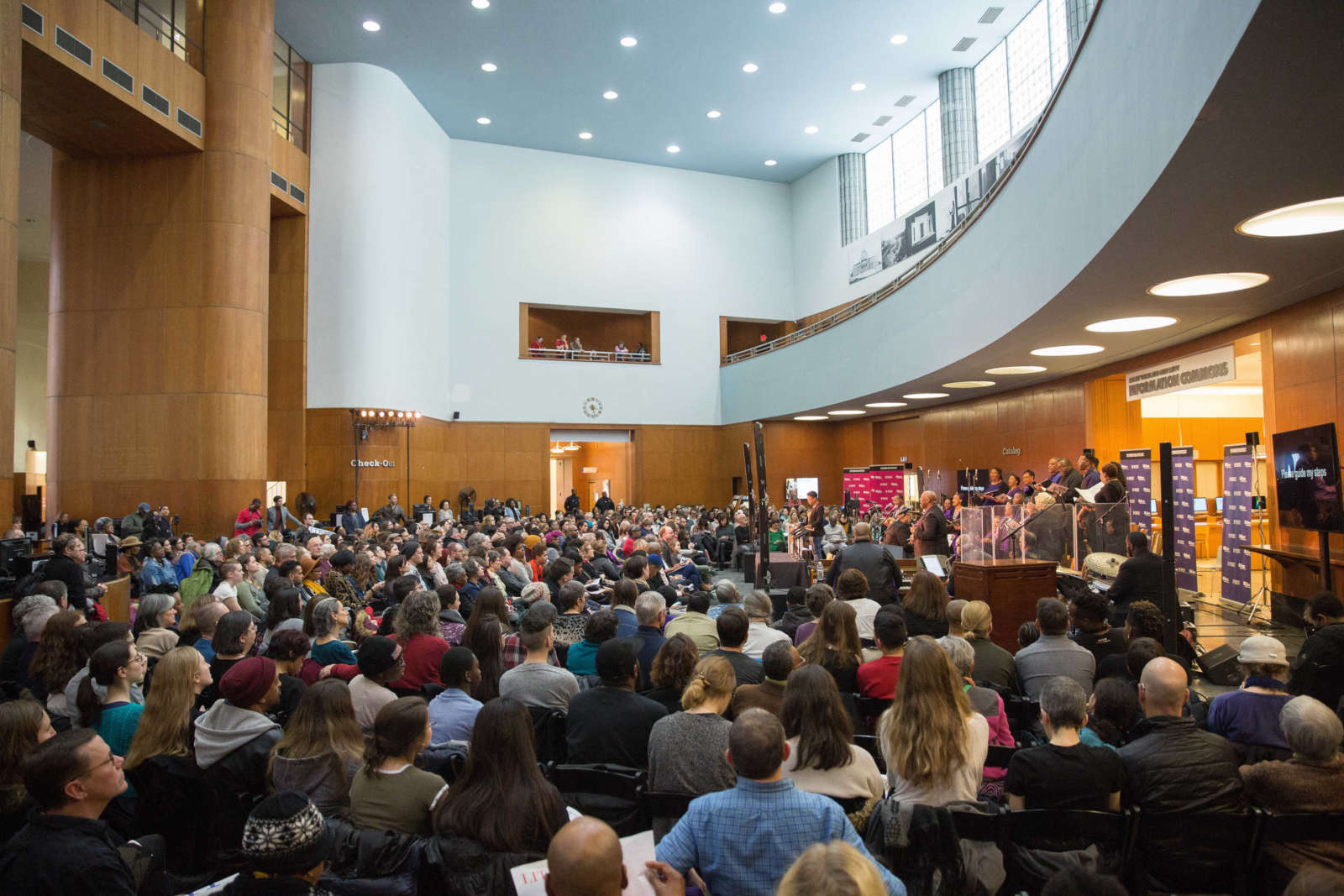
The crowd at the The Drum Major Instinct
Brooklyn Public Library, Grand Army Plaza / 2018
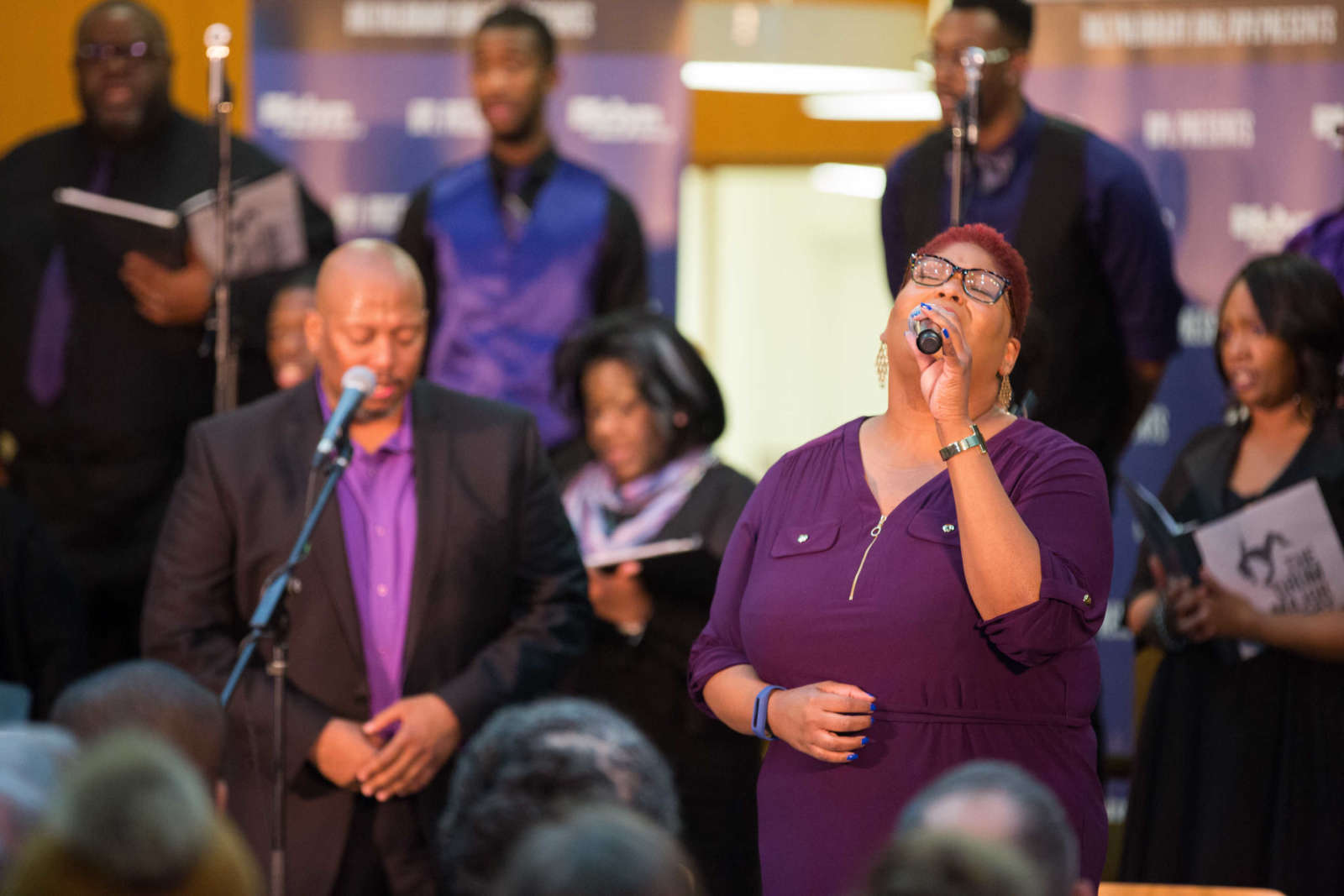
De-Rance Blaylock sings in The Drum Major Instinct
Brooklyn Public Library, Grand Army Plaza / 2018
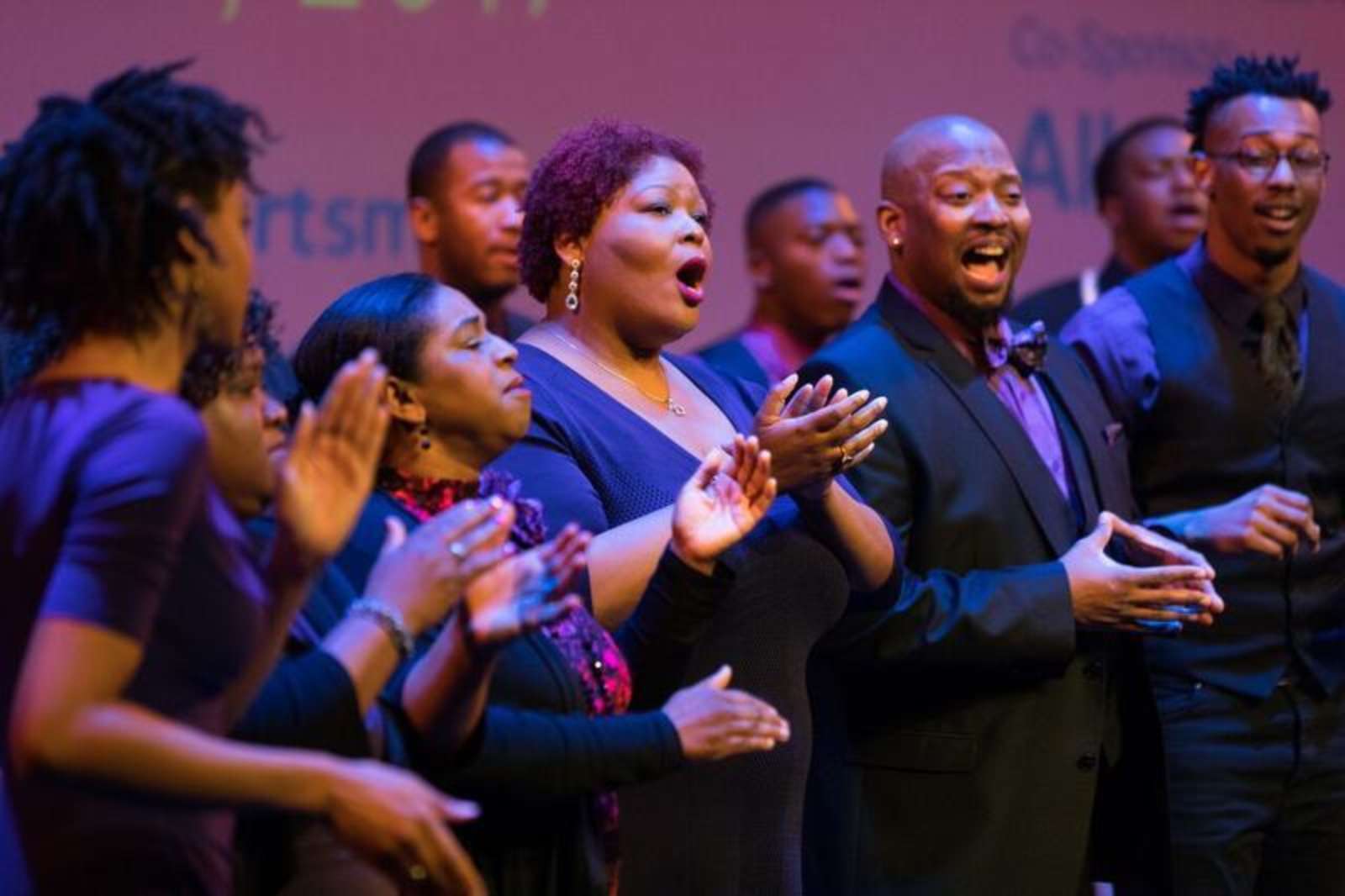
Production born of Martin Luther King Jr.’s words seeks to spark conversation about racism
St. Louis Public Radio / 2017
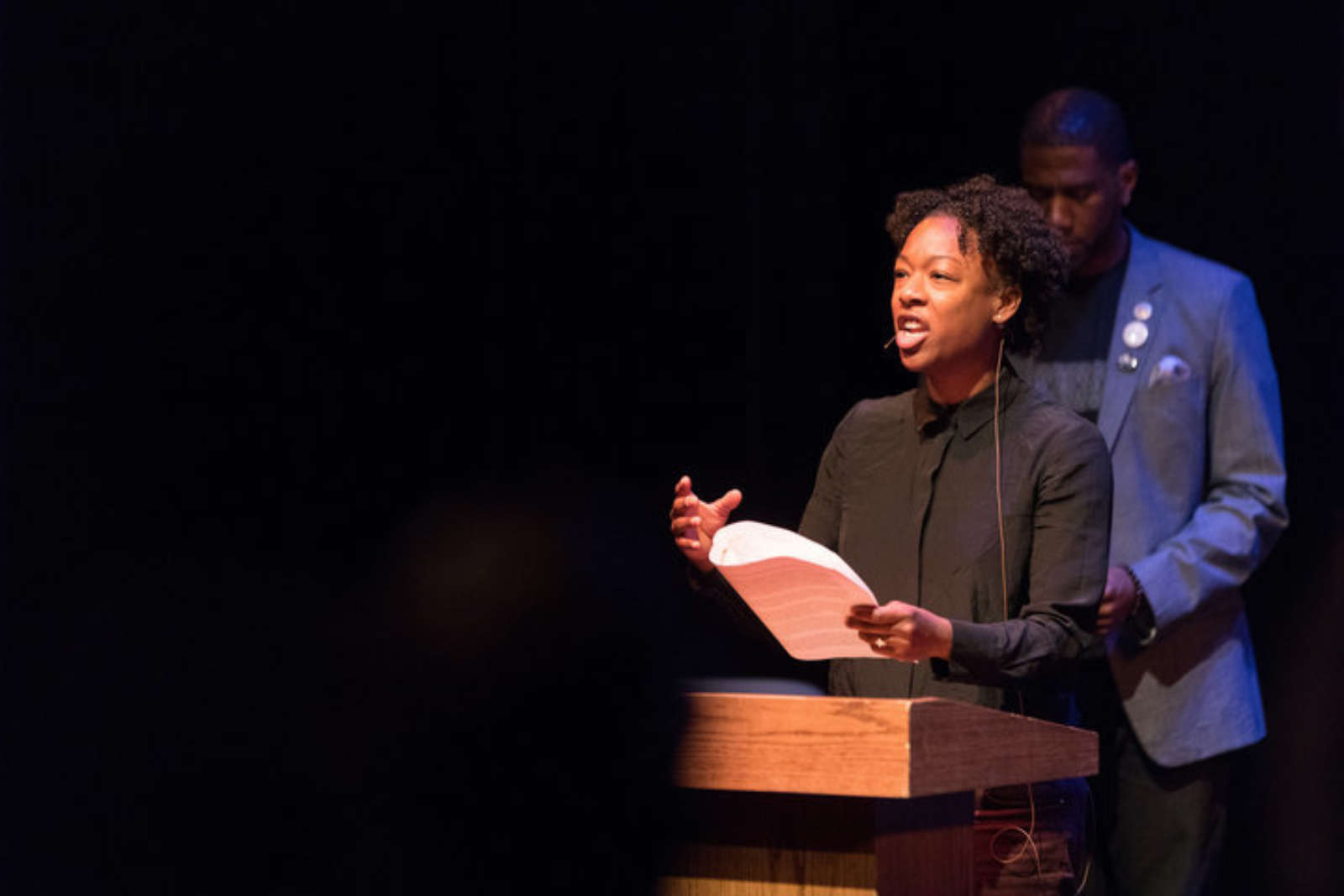
Samira Wiley Reenacts MLK Speech, Defends Art As A Form Of Resistance
BRIC / 2017
The Huffington Post reports on the Premiere of The Drum Major Instinct. Read the article.
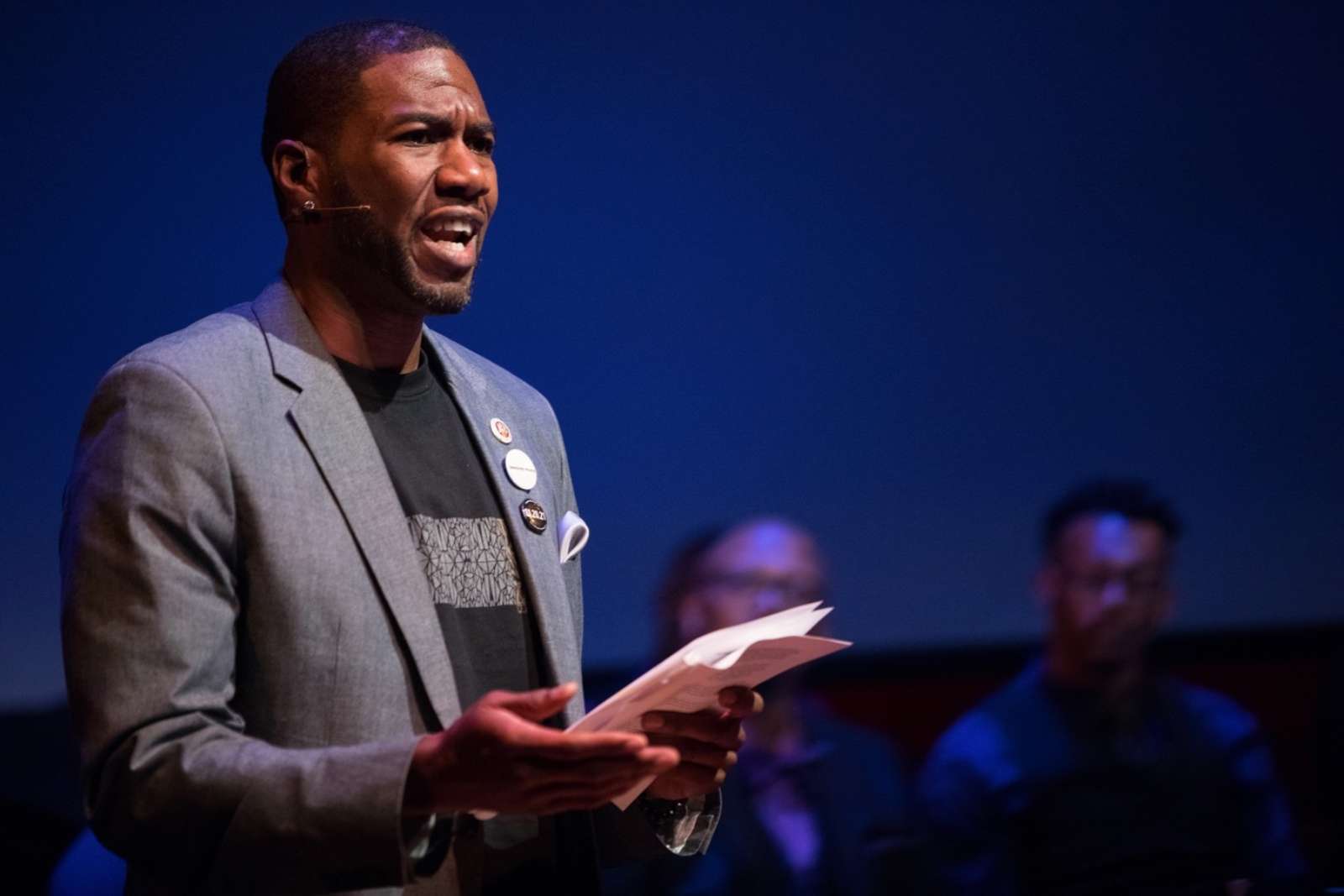
A Timely Performance of MLK’s Final Sermon Takes Viewers to Church
BRIC / 2017
Council-member Jumaane Williams performs in the premiere of The Drum Major Instinct at BRIC. Read the article.
Explore Projects
-
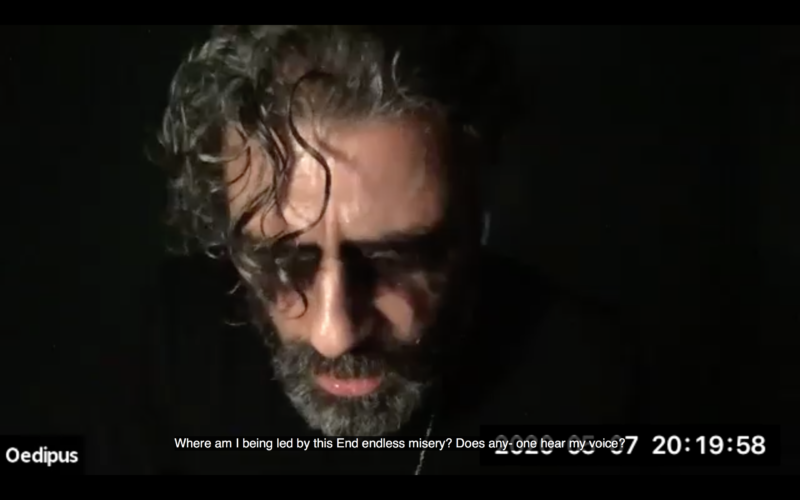 Pandemic & Climate CrisisThe Oedipus Project
Pandemic & Climate CrisisThe Oedipus ProjectThe Oedipus Project presents acclaimed actors reading scenes from Sophocles’ Oedipus the King as a catalyst for powerful, constructive, global conversations about the climate crisis, ecological disaster, environmental justice, and healing online conversations about the impact of the COVID-19 pandemic upon diverse communities throughout the world. Sophocles’ ancient play, first performed in 429 BC, just after the first wave of a plague that killed nearly one-third of the Athenian population, is a story of arrogant leadership, ignored prophecy, intergenerational curses, and a pestilence and ecological collapse that ravages the archaic city of Thebes. Seen through this lens, Oedipus the King appears to have been a powerful tool for helping Athenians communalize trauma and loss, while interrogating their own complicit role in the suffering, not just of those around them but of generations to come.
-
Caregiving & DeathThe Nurse Antigone
A groundbreaking project by and for nurses, The Nurse Antigone presents dramatic readings of Sophocles’ Antigone on Zoom—featuring professional actors and a chorus of frontline nurses—to help frame powerful, guided discussions about the unique challenges faced by nurses before, during, and after the COVID-19 pandemic.
-
 GenocideThe Investigation
GenocideThe InvestigationTheater of War Productions and the Museum of Jewish Heritage, in partnership with the National Yiddish Theatre Folksbiene, present readings of scenes Peter Weiss' play The Investigation, a piece of documentary theater adapted from the Frankfurt Auschwitz Trials of 1963-1965. This project centers on guided discussions about mass murder and its lasting impact upon individuals, families, communities, and countries throughout the world. Performed by a diverse cast, including international performers from communities affected by genocide, The Investigation seeks to generate powerful dialogue across cultures and communities about the human capacity for evil, as well as the systems and hierarchies that create the conditions for unthinkable violence.
































